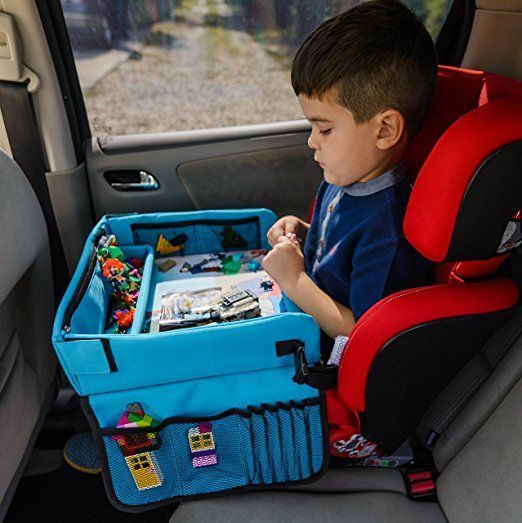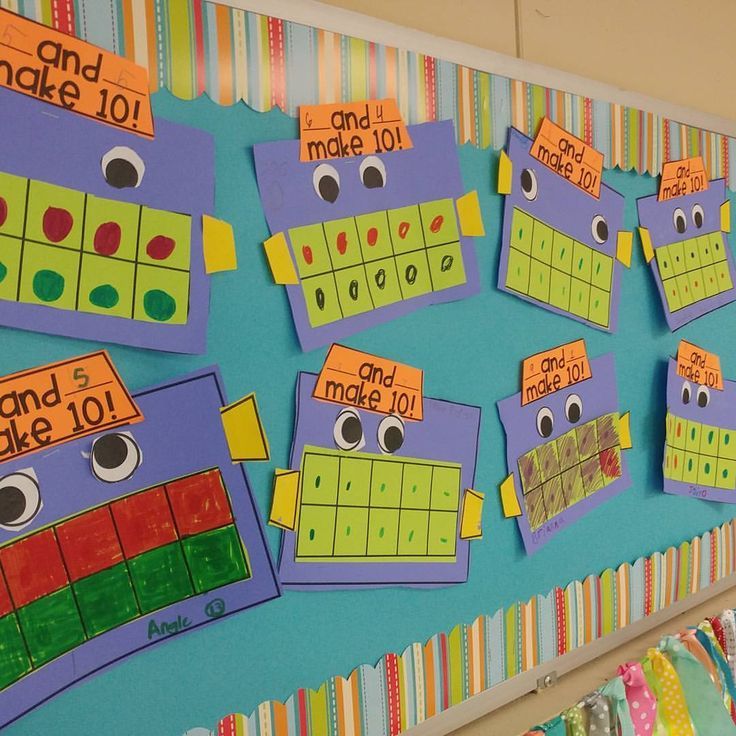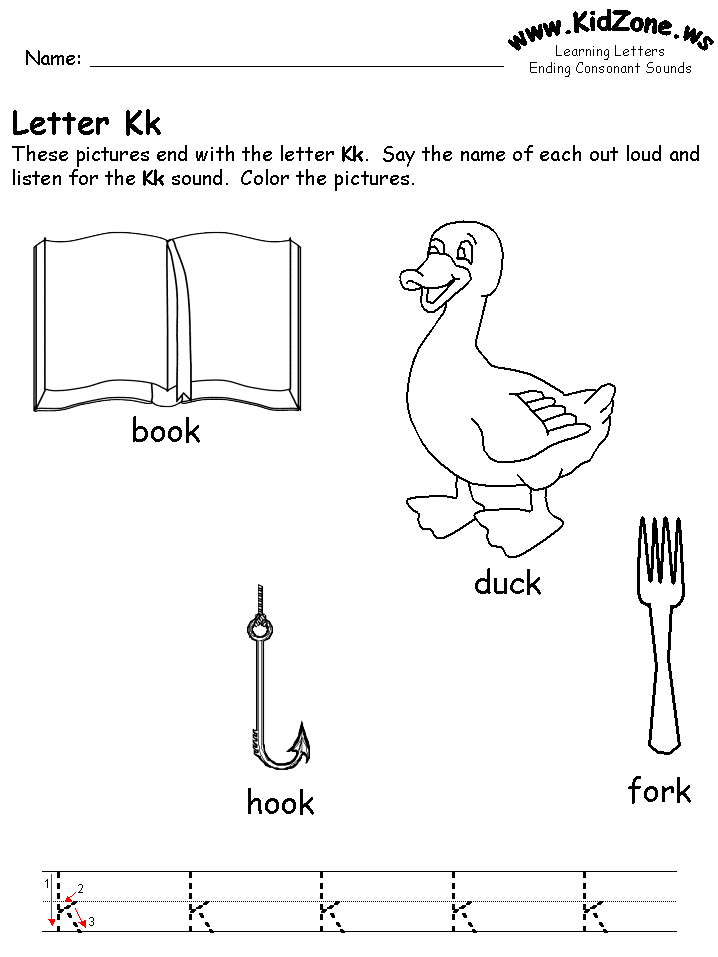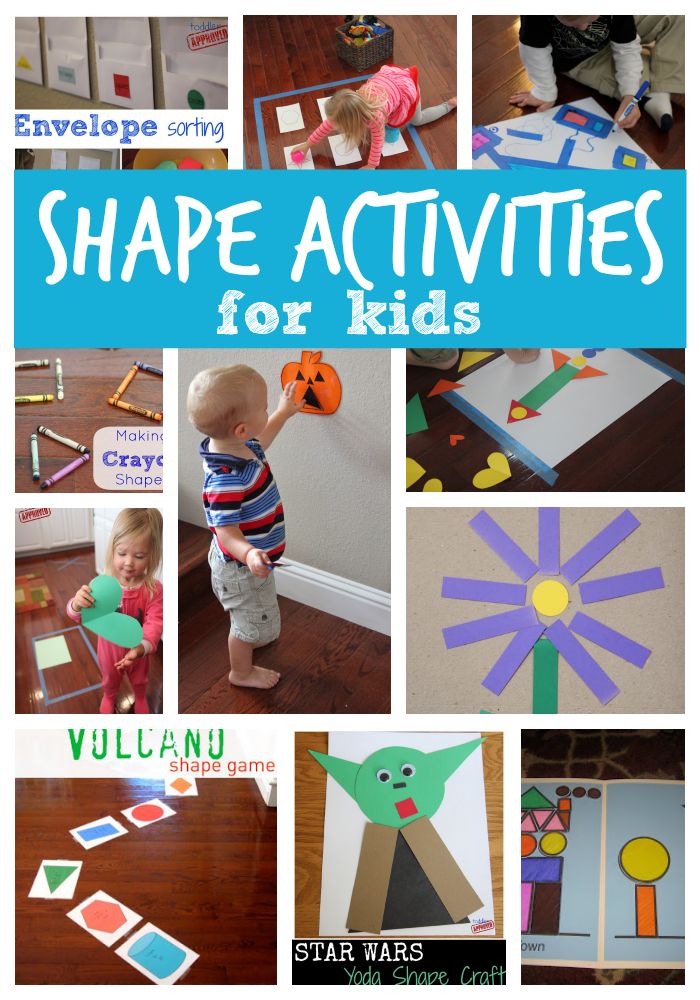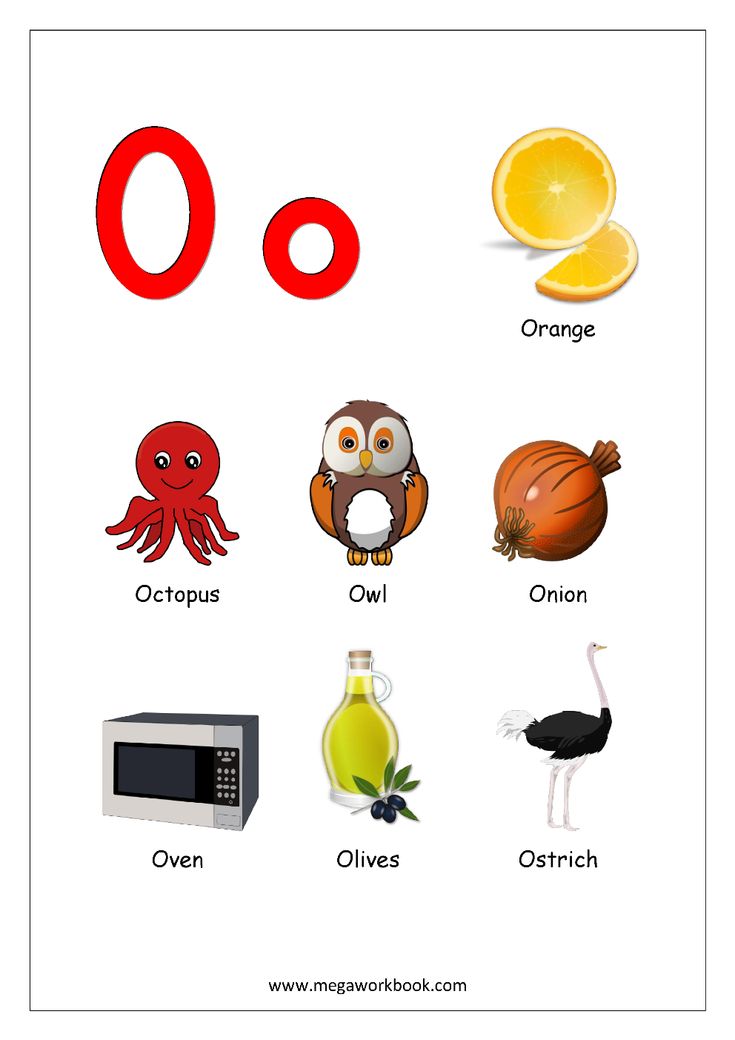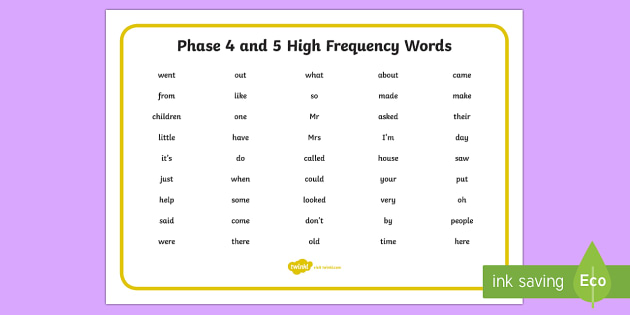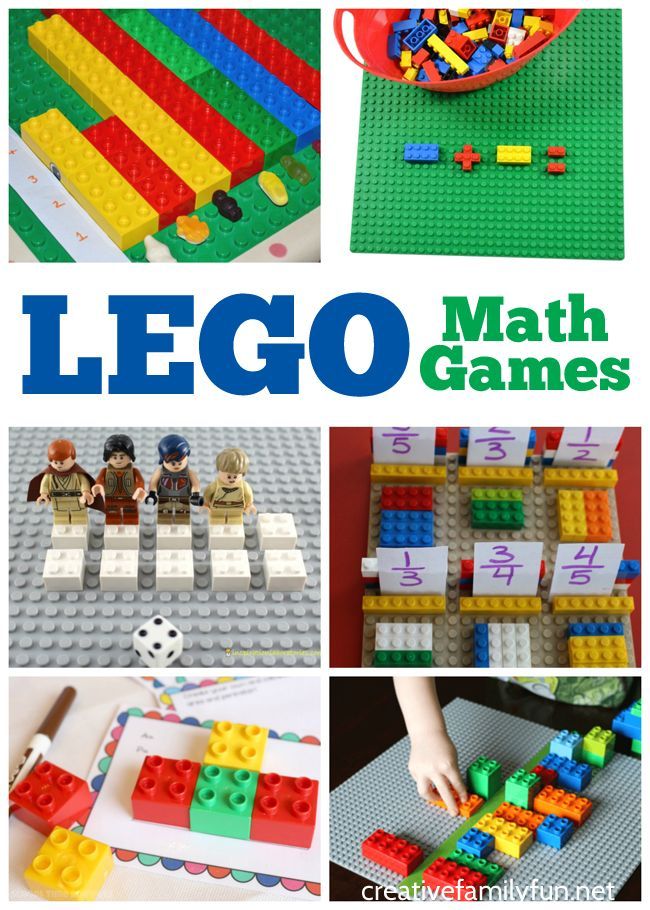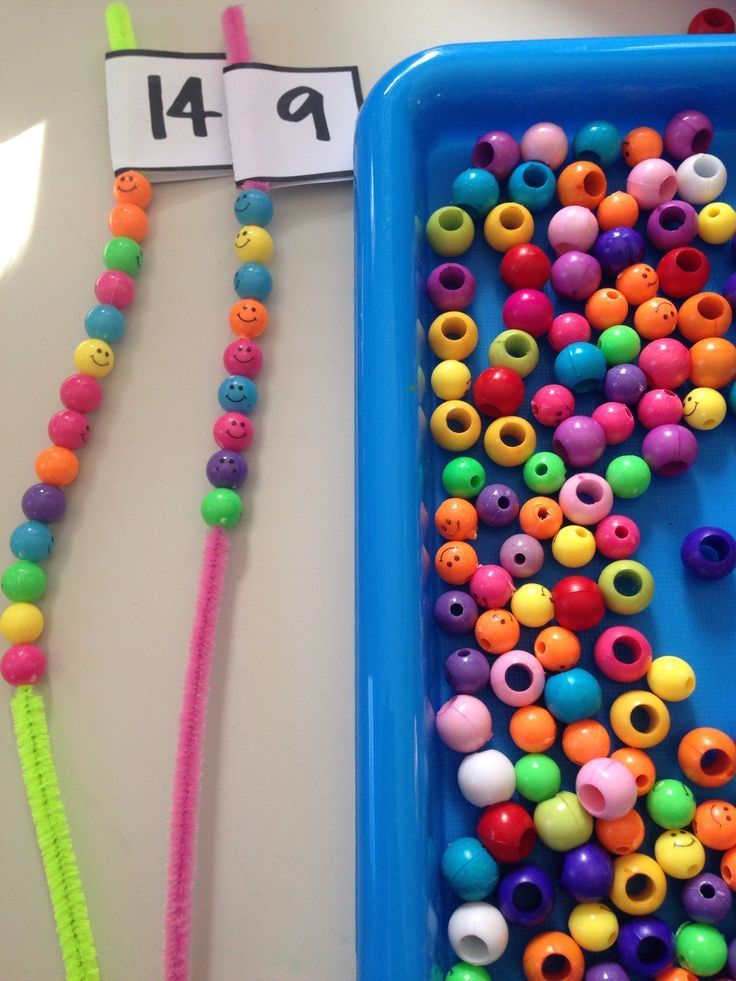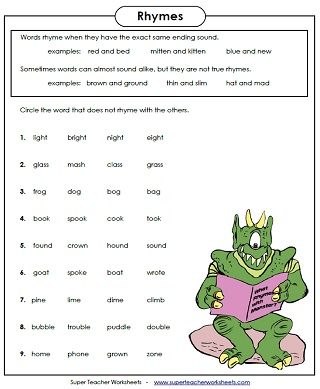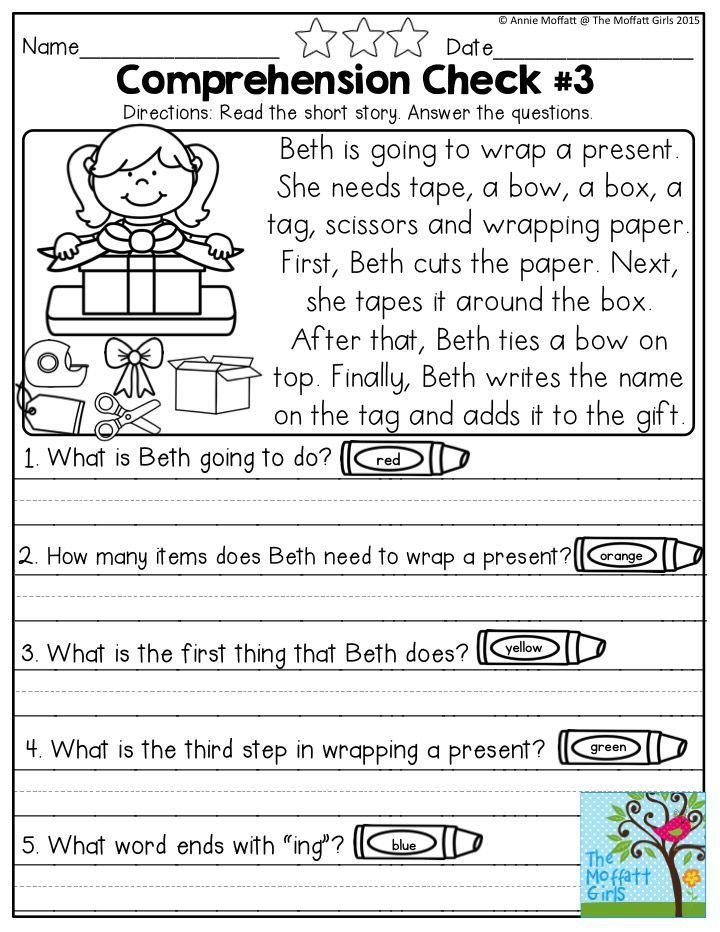Kids car travel games
Road Trip Games For Kids
Driving to your next destination could actually be fun! Photo: Maria Smith
Family road trips are not just about getting to a destination.They are also about the journey. I’m all for iPads and DVD players and other technology but there is something to be said for turning all that off and actually coming together to pass the time. This is when memories are made.
Even with all the technology in the world, there will come a time when the battery runs dead, the headphones break, or *GASP* you travel through an internet dead zone. Be prepared for this on your next family trip with these old-school road trip games for kids.
The journey and not just the destination will have your kids jumping for joy. Photo: Maria Smith
9 Road Trip Games For Kids1. Twenty Questions
Who can play: Ages 5 and up
Items needed: None
To play Twenty Questions, you just have to have one person choose a person, place or thing. Then everyone else gets twenty questions to try to figure out what that person is thinking about. It might be difficult for smaller children, but you never know. Sometimes it’s the youngest ones who have the best questions!
2. License Plate Game
Who can play: Ages 7 and up
Items needed: paper and pencil for each player
This is one of the old school road trip games that works best during those long cross-country hauls. Start when you pull out of the driveway and as each player sees a new state on a license plate, they mark that state down on their paper. After a certain amount of time, like to the first bathroom break, you count up how many states each player has found and the person with the most states is the winner. Feel free to continue the game or start over.
Old school road trip games are not just a relic of the past. With the massive takeover of handheld technology and wireless internet access, it may seem like they are needed about as much as a CB radio is needed.
However, there is a reason they survived so many years of family road trips. They are fun and (don’t tell the kids) educational too!
3. The Name Game
Who can play: Ages 4 and up
Items needed: none
The fun thing about this game is there are endless variations. The basic one is that you start naming names as you go around the car. You have only 3 seconds (or 3 hand claps or some other appropriate time scale) to come up with a name for your turn. If you fail to think of one, then you’re out. Be sure to say what qualifies as a name (first name only? Last names? Fictional names?). Also, we give my five-year-old two “misses” before he’s out. Consider doing that for the younger kids so they can still play along and you avoid unnecessary meltdowns. Done with names? Play the same game with colors, cities, countries, feelings, etc.
You may also enjoy this article: 100 Things To Always Keep In The Car
There is plenty to “spy” when you’re on the road.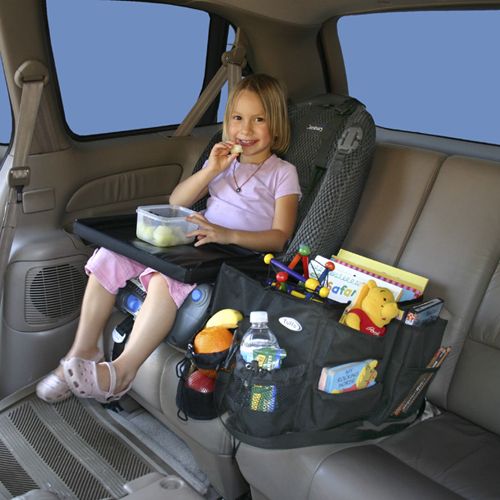 Photo: Maria Smith
Photo: Maria Smith
4. I Spy
Who can play: All ages
Items needed: None
This is one of the perennial old school road trip games. Everyone can do it, though little kids may choose some obvious objects. Be sure to start the game saying if the item the person “spies” should be inside or outside the car. This may be a little difficult if you have color-blind family members.
5. Name That Tune
Who can play: All ages but best for tweens and teens
Items needed: None (unless you want to keep score)
Use one of the streaming services on a phone to let one person control the music in the car. He or she will play up to 5 seconds of a song and the rest of the group has to guess which song that is. You may want to limit the songs to one genre, like Disney music for example, so little ones can play too.
Planning to trip to a Disney Theme Park? Check out this Disney family road trip playlist.
6. Road-trip BINGO
Who can play: All ages
Items needed: Pre-made travel bingo board games
There is a reason BINGO has remained popular over the decades. Everyone loves it. We bought $1 travel bingo board games from Target but you can also make your own. The players just need to pay attention to the passing landscape and find the items on the board. On long road trips you may want to get creative and decide what constitutes a BINGO (four corners, all-board, X, etc).
Everyone loves it. We bought $1 travel bingo board games from Target but you can also make your own. The players just need to pay attention to the passing landscape and find the items on the board. On long road trips you may want to get creative and decide what constitutes a BINGO (four corners, all-board, X, etc).
7. Hangman
Who can play: Ages 6 and up (readers)
Items needed: Pencil and pad of paper
One player thinks of a word and puts the corresponding number of dashes on a piece of paper. Other players guess letters that may be in the word. If they guess a letter that is not in the word, a part of the hangman is created. We use head, two arms, body, and two legs. This gives the player six chances to get letters wrong before they lose. Ultra-competitive family members can make this hard by choosing very hard words so be wary of that. Also, early readers may not know the correct spelling and should check with someone not playing that the word they want is spelled correctly.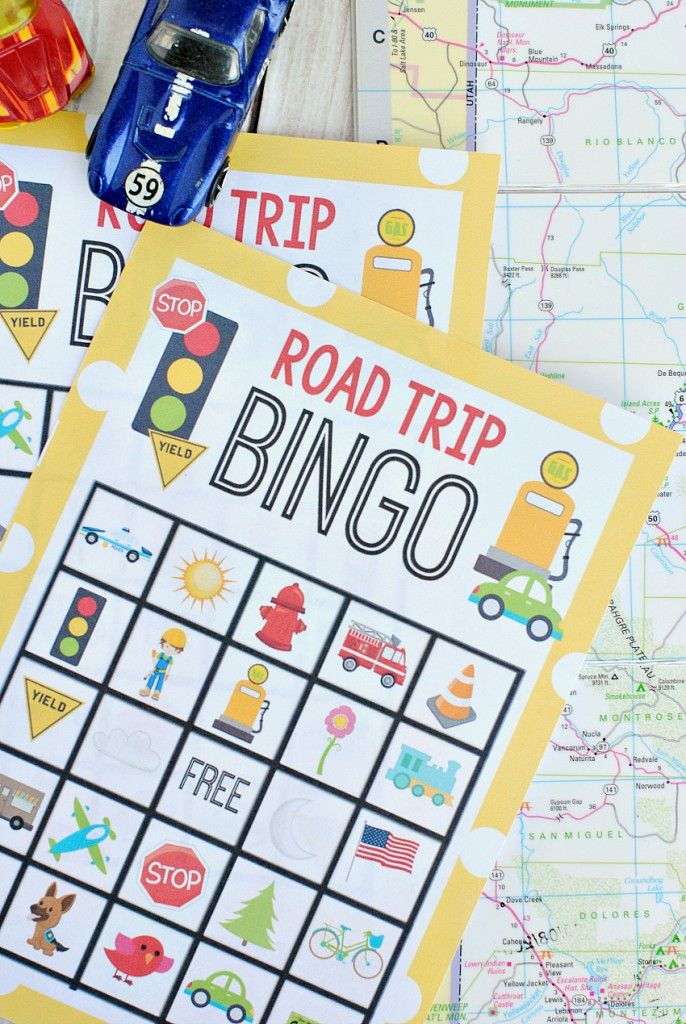
Need help keeping the car clean while on your trip? Here are 9 Easy Road Trip Hacks To Keep Your Car Clean.
8. Story Starter
Who can play: All ages
Items needed: None
This is one of those really fun games that is sure to end in fits of laughter. One person starts a story but doesn’t finish the sentence. The next person finishes that sentence and starts another, continuing that story. Even little ones can play and often provide some hilarious additions.
9. Alphabet game
Who can play: Ages 5 and up
Items needed: None
The Alphabet game works best on long, cross-country road trips, especially those that travel through small towns. Simply find words that start with each letter of the alphabet. First to find them all wins. Word to the wise: just eliminate Q, X and Z. Make it easy on yourself and your kids. For a different variation, have each player write the alphabet out on a piece of paper. As they see a word, have them cross out the letter that the word starts with.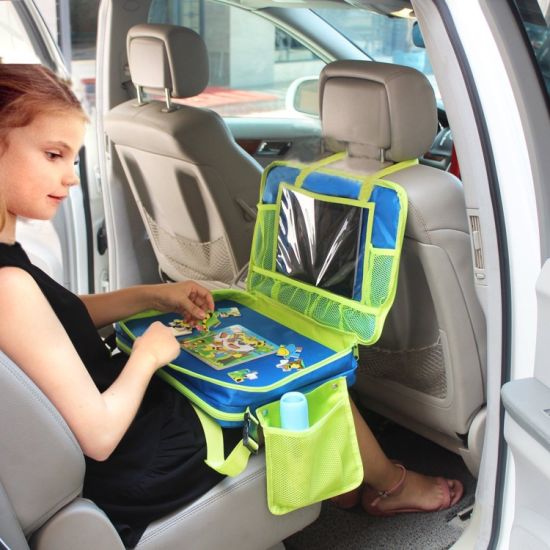
- Bio
- Latest Posts
Maria Smith is the founder of MamaliciousMaria.com, one of the top parenting, travel and auto blogs in the country. A member of the Greater Atlanta Automotive Media Association, Maria is Married with 4 kids aged 4 to 10. In her pre-baby life she was a TV producer at The Oprah Winfrey Show, among others, and these days, aside from motherhood and writing, plays a mean game of tennis, travels constantly and covets finding fun things for moms to do.
21 Best Road Trip Games to Play in the Car for Kids in 2021
Wondering how you’re going to keep the kids entertained on the next family road trip? Don’t worry, we’ve got you covered! We’ve put together a list of the best road trip games for kids that will make the next car adventure seem like a breeze.
View Table of Contents
So, if you’re having a hard time thinking up ways to pass the time, keep reading. We’ve done the research and compiled a list of fun road trip games to play with the kids.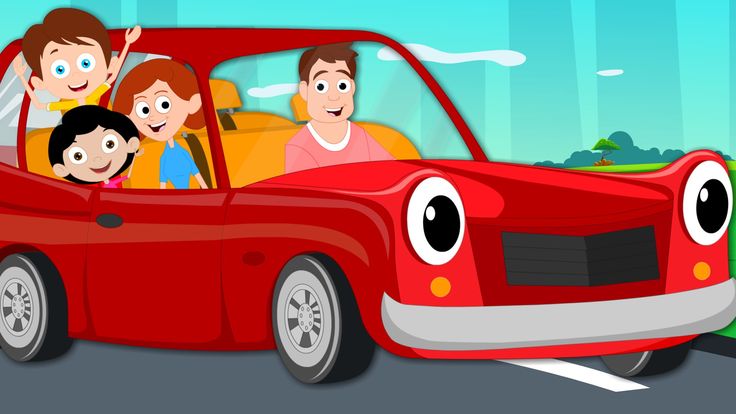
You can also check out our guide to planning the ultimate road trip for more fun things to do in the car. See our suggestions below!
1. Name the Artist
The first person to name the artist or group when a song comes on the radio gets a point. Keep playing until you reach your destination and whoever has the most points at arrival, wins. Need a great playlist? Check out our dance party tracks on Spotify here.
2. The License Plate Game
The goal is to spot as many license plates from different states as you can. Whoever sees a plate first and calls it gets to color it in on their map. The person with the most states colored in at the end, wins.
3. The Grocery Game
Choose your first player and ask them to think of an item you can purchase at the grocery store. Everyone else in the car takes turns guessing what it might be by asking a question. Is it something you would find in the frozen food aisle, perhaps? No? Guess again!
4. What Color is It?
Have the adults in the family list a bunch of things that are the same color. For example, they may say “fire engines, apples, stop signs…” They should keep going until the kids yell out, “Red!” Remember, road trips are long. The more items you list, the better!
For example, they may say “fire engines, apples, stop signs…” They should keep going until the kids yell out, “Red!” Remember, road trips are long. The more items you list, the better!
5. Alphabet Game
Keep an eye out for road signs! The objective here is to find a word on each sign you pass that begins with each letter of the alphabet, starting from the beginning (“A” for Arby’s, and so on). Call them out as you drive by. First one who gets to Z, wins!
6. Road Trip Scavenger Hunt
Print out our Scavenger Hunt game card, one per player. First one to complete their card wins.
7. Punch Buggy
An ol’ fashion road trip favorite! See who can spot the most punch buggies, also known as the Volkswagen Beetle, on the road! When you see one, shout it out and include the color of the car (Yellow punch buggy!). Those kinds of sightings are worth one point.
Classic bugs are worth 2, and vans worth 5. Rare models, such as “Herby the Love Bug” are worth a whopping ten! Whoever has the most points by the time you reach your destination wins.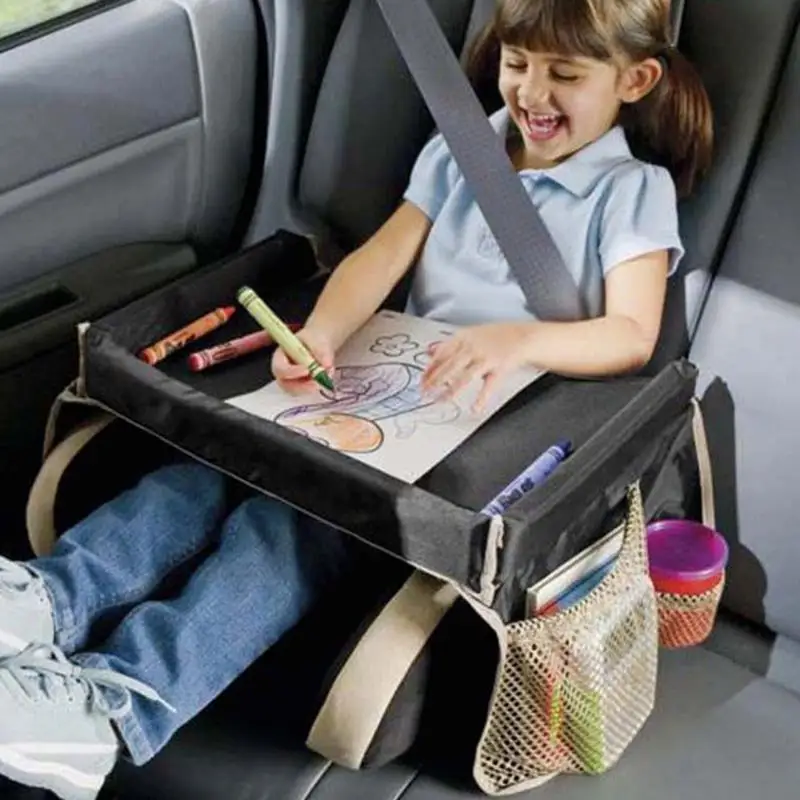 Remember, the game doesn’t end until the car is parked!
Remember, the game doesn’t end until the car is parked!
8. I Spy
Because this one is already so well known, it won’t take a lot of instruction to learn how to play. The first person selects something either on the road or in the car without revealing what it is to the rest of the players in the car. Then they must repeat the phrase, “I spy with my little eye something that begins with the letter …” as it relates to the answer.
The other passengers then try to guess what it might be. While it’s not the most complex car game out there, it is a great way to help young kids develop their spelling and grammar skills, particularly those who are still getting familiar with the alphabet.
9. 20 Questions
We’ll admit that when driving through long stretches of rural area, “I Spy” might not be the best choice to entertain the kids with. 20 Questions, on the other hand, offers endless opportunities for road trip entertainment and is a great choice for games for long car rides.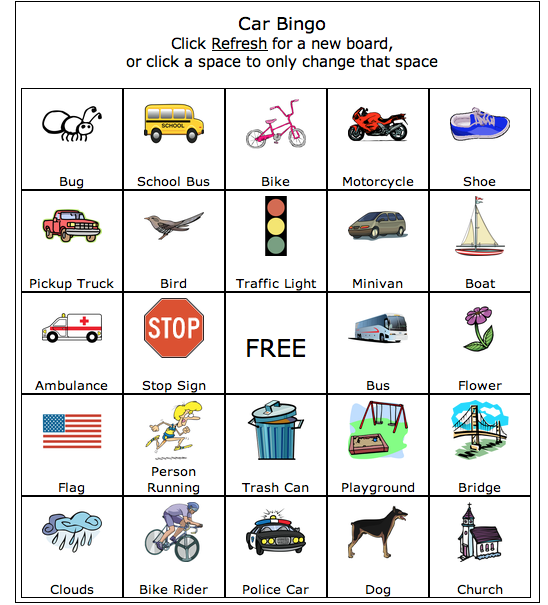
Pick out a person, place or thing. Everyone in the car can take turns asking yes-or-no questions about what it is, or who it is, you may be thinking of. No two people should ask the same question, and no one can answer more than 20 questions.
Whoever guesses the mystery object first goes next!
10. Triple Threat
Next on the list of road trip games to play on car rides is the Triple Threat. Here, the adults must choose three nouns, like “plate,” “monkey” and “snow,” for example. The kids have to create a story that includes all three things. Be warned: things will get very silly, very fast.
11. Category ABCs
As far as games for a car ride go, this one is pretty straightforward. Have the first player choose a category and name something that begins with the letter A.
The next person does the same, only their answer should begin with the letter B. The next person is in charge of letter C, and so on. Some examples for the “food” category include Apples, Broccoli, Cookies…
12.
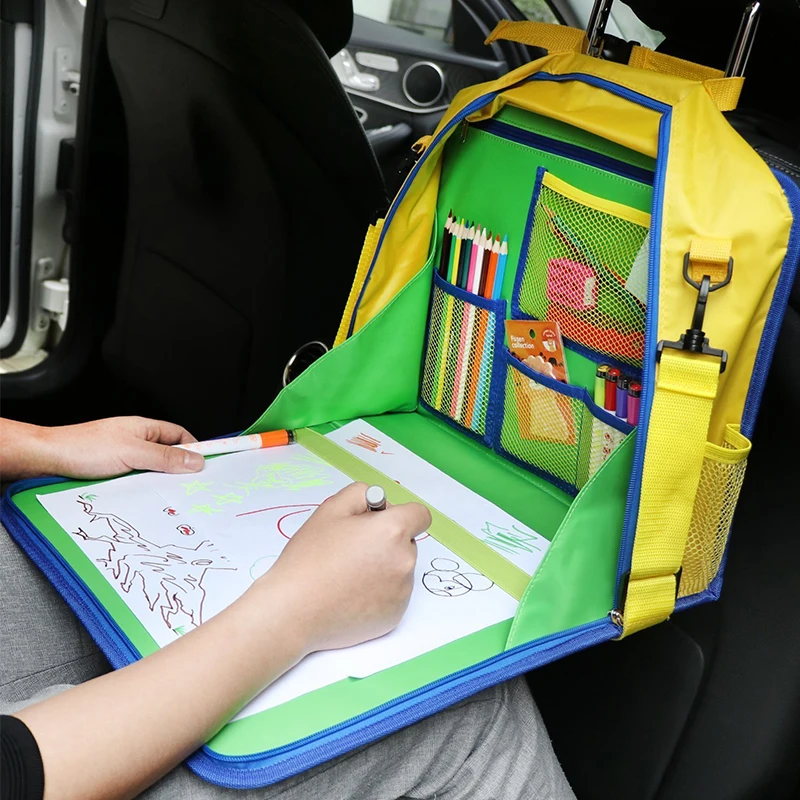 Car Color Search
Car Color SearchA perfect game for younger kids. Print out one game card per child and let them circle the car colors as they spot them.
13. Would You Rather
Here’s another kid-friendly exercise: Choose one person to think of a question. For instance, Would you rather be the funniest person alive, or the smartest person alive?
You can direct these questions to everyone in the car or take turns providing answers. Of course, when it comes to playing these types of games in a car, it’s important to make sure you’re well prepared.
You can always print out some questions ahead of time to make sure you don’t run out of ideas when on the road.
14. In My Suitcase
Why not sprinkle a fun memory game into your road trip experience? The first person starts by saying, “I’m going on vacation and I packed…” Finish the sentence with any item that begins with the letter A.
The next player must repeat the sentence said by the first player and add an item to the list beginning with the letter B.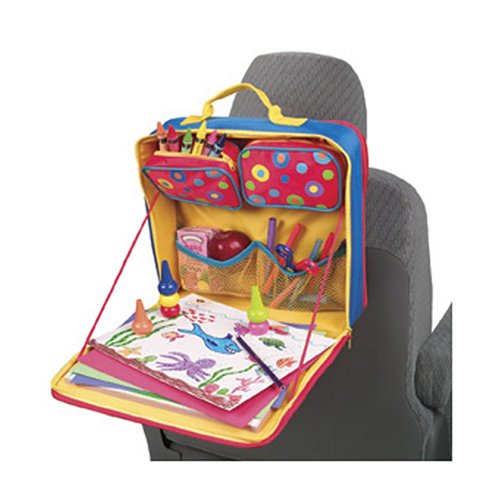 Keep going and see how many letters you can get through before someone forgets!
Keep going and see how many letters you can get through before someone forgets!
15. Name the Most…
Decide on a category and go around the car to see how many related items you can name. For example, you can start with Disney princesses or characters from a specific movie.
You can up the competition a bit by having the passengers bet on who can name the most within the shortest amount of time. If challenged, each opponent must provide an answer within 5-10 seconds. Whoever gets stumped first, loses.
16. Sing Along Challenge
Looking for games that carry a little rhythm? Look no further. To play, one person starts singing a line from a popular song. Passengers must pay attention to the last word sung.
The next person to sing a line must make sure it begins with the same word. See how long it takes until someone gets stuck!
17. The Movie Game
Here’s another fun game to play during a long car ride. Have someone in the family suggest a letter. For instance, if they chose to begin with T, then everyone else in the car must think of movies that begin with T, as in Toy Story and so on.
For instance, if they chose to begin with T, then everyone else in the car must think of movies that begin with T, as in Toy Story and so on.
Once you get through that category, you can begin moving through the alphabet.
18. Hypotheticals
In need of a few more fun car games to get you through the drive? Get everyone in the car to respond to a series of hypothetical questions, like, “What would you do if you won the lottery?”. Or, “If you could transform into any kind of animal, what would it be?”.
Brownie points for whoever provides the most creative answers!
19. Count the Animals
For this game, you must name a series of objects or animals to look out for when on the road. You can choose any number of things, from cows to road signs to yellow cars and more.
Keep a tally of every object on the list that you spot. Whoever has the most points by the end of the road trip wins!
20. Top 10 Game
This one can be applied to almost any subject.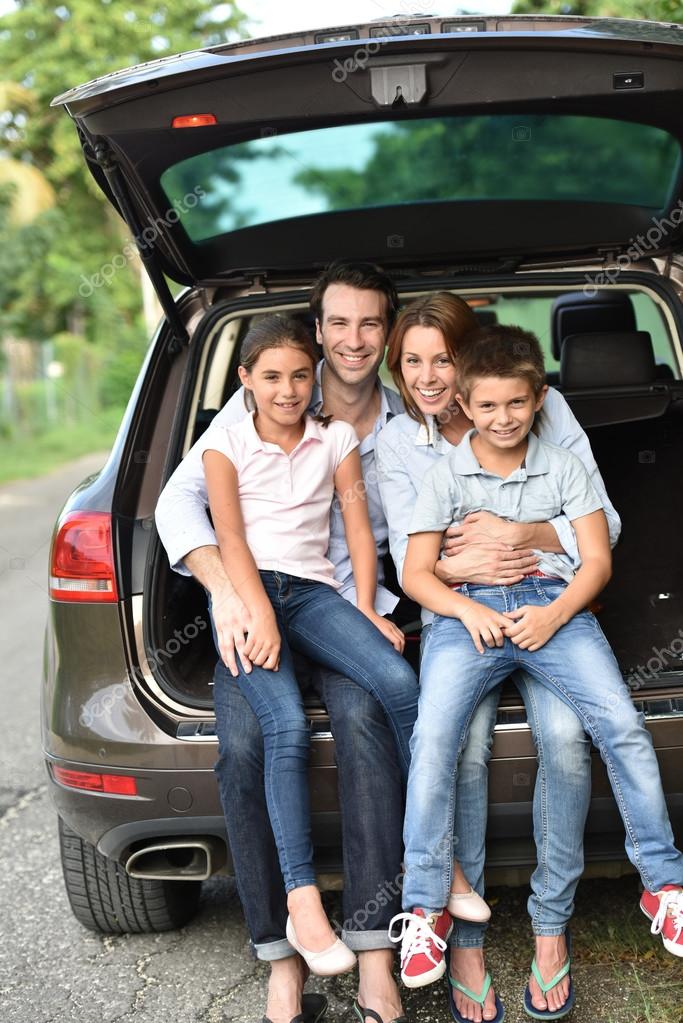 Into cars? Have the family come up with the top 10 favorite models. Maybe you’re a musical fanatic. Ask everyone in the car to volunteer their favorites until you get to 10.
Into cars? Have the family come up with the top 10 favorite models. Maybe you’re a musical fanatic. Ask everyone in the car to volunteer their favorites until you get to 10.
Any Robert Pattinson fans in the family? Come up with his top 10 roles!
21. Backseat Bingo
Looking for more fun games to play in the car? Check out this next activity. Before you hit the road, print out these bingo cards. They have different sheets available for different areas, so print according to where you’re traveling.
Each player should take a good look at their cards and keep their eyes on the road to spot items along the way. The first player to cross out a horizontal, vertical or diagonal line of their bingo sheet, wins!
We hope you enjoyed our list of road trip games to play in the car! Don’t forget to take photos along the way and share on social media. Tag us in the fun! Check back in with us soon for more things to do with the family.
Each week, we’re bringing you some original ideas on how to have family fun at home, at the lodge and when you travel.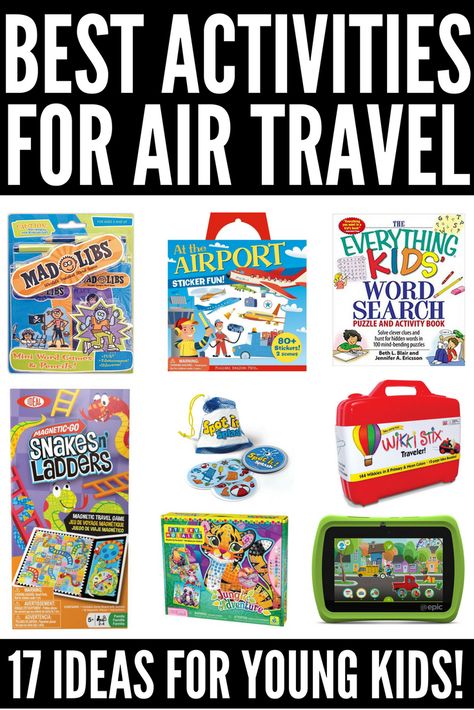
10 games to turn the road with your child into a fun trip
Gulnaz Sagitdinova
The road is the best time to play short thinking games with your child. Here are the games that will help you with this:
- Backwards game. When you are driving in a car or flying in an airplane, play this game with your child. Take a word and ask the child to say it backwards. For example, "CLOUD" would sound like "OKALBO". Children will find this game very funny. If you are not too lazy, then you can encrypt, in this way, the whole message! “Ym mitel an erom!”, for example. The child will have to strain his brain very actively in order to read such mirror words and phrases.
- The game "One letter - many words." Name nouns in turn starting with one of any chosen letter. Whoever runs out of words loses.
- Book-eater game. In this game, you need to match descriptions to objects that begin with the same letter.
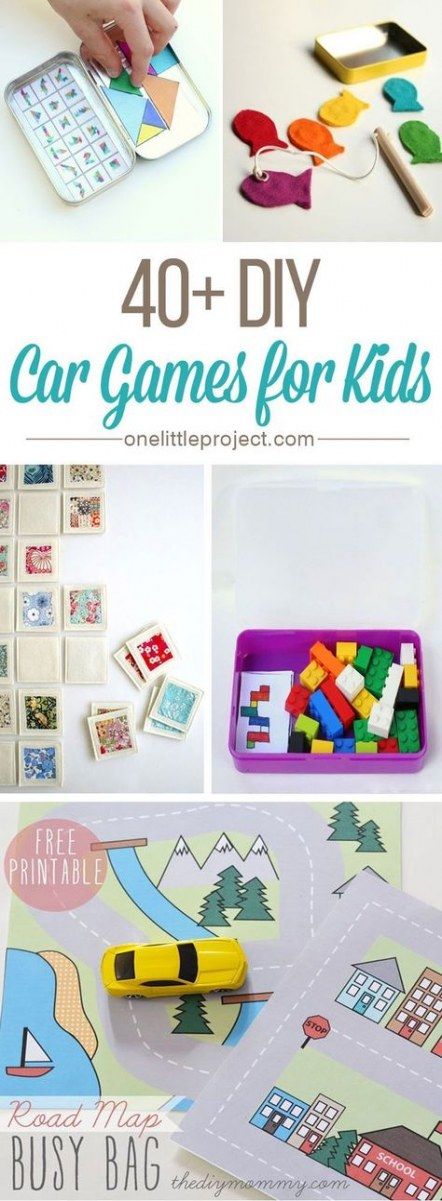 For example, you saw a cat. We are looking for a description with the letter K - "The cat is sneaking towards the box." Or you saw a fly, so we are looking for a description with the letter M - "Masha's mother washes the car." This game is great for playing in the car and stimulates the mental processes.
For example, you saw a cat. We are looking for a description with the letter K - "The cat is sneaking towards the box." Or you saw a fly, so we are looking for a description with the letter M - "Masha's mother washes the car." This game is great for playing in the car and stimulates the mental processes. - Encrypted word game. The game is that you choose a word, for example "table", and come up with a sentence with the child, the words of which begin with letters from the invented word. So: "Trunk of the Poplar Very Brittle" or "Blue Fog Enveloped Leningrad". It turns out very funny.
- Spy message game. Each word of the alphabet is assigned a number: A - 1, B - 2, C - 3, D - 4, D - 5, E - 6, E - 7, F - 8, W - 9, I - 10, Y - 11 , K - 12, L - 13, M - 14, N - 15, O - 16, P - 17, R - 18, C - 19, T - 20, Y - 21, F - 22, X - 23, C - 24, H - 25, W - 26, W - 27, b - 28, S - 29, b - 30, E - 31, Yu - 32, I - 33. You think of a word or phrase, and your child guesses.
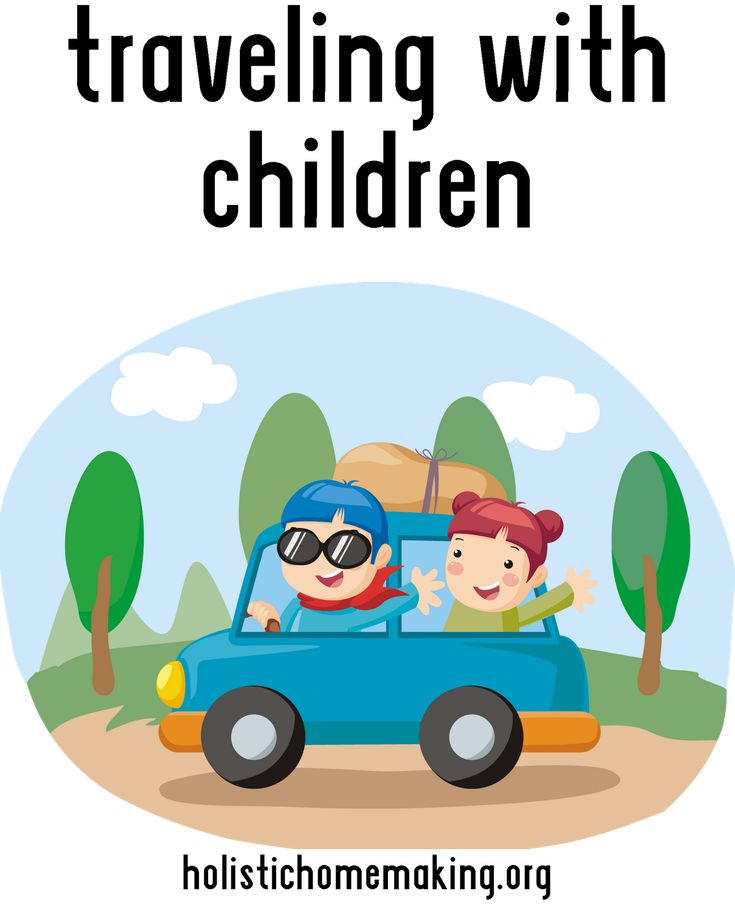 For example, the word BOOK will look like this: 12 + 15 + 10 + 4 + 1. You can write encrypted messages to each other (for example, "17 + 16 + 18 + 1" "19 + 17 + 1 + 20 + 30"), do numbers in your secret language. This game is fantastic for developing math skills. To play this game on a plane or train, you can prepare a card with letters and corresponding numbers in advance.
For example, the word BOOK will look like this: 12 + 15 + 10 + 4 + 1. You can write encrypted messages to each other (for example, "17 + 16 + 18 + 1" "19 + 17 + 1 + 20 + 30"), do numbers in your secret language. This game is fantastic for developing math skills. To play this game on a plane or train, you can prepare a card with letters and corresponding numbers in advance. - Game "6 words". Talk to each other in such a way that the sentence contains 6 words, and they must make sense: “Today we will finally go to the circus! ".
- The game "The missing letter". Imagine that some letter is missing, just disappeared. For example, K . You need to talk to each other, avoiding the letter K in words. So: “Come on, let's go to the theater or the museum? - With pleasure. I suggest the Moscow Art Theater. “Great idea, let’s run for tickets!” And so on. Firstly, the game makes you think hard, and secondly, it develops vocabulary, because.
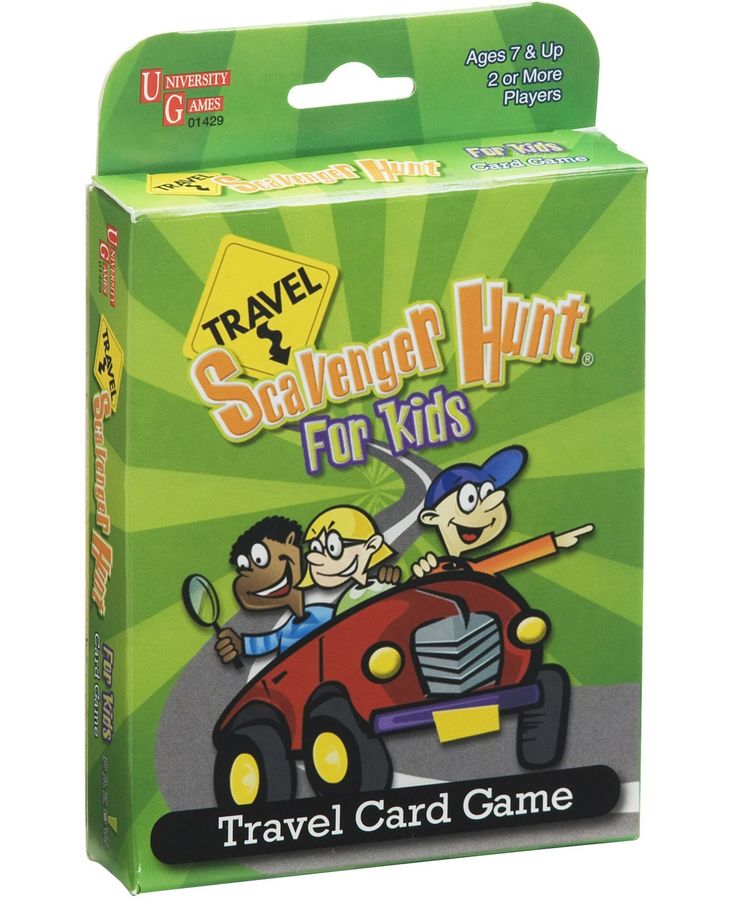 the child sorts through the words in memory, looks for synonyms, selects different solutions.
the child sorts through the words in memory, looks for synonyms, selects different solutions. - Exercise "The best day". Remember yesterday in detail. You will be surprised how mechanically we live. It is very difficult to remember the day in detail from morning to evening. Questions can be: what did you eat for breakfast, what did you drink, what color socks did you wear, what color was your father's shirt, what was your mother's hairstyle, how many children were absent from school, what fairy tale did you read in the garden, etc. All these questions stimulate memory and increase awareness of life.
- Game "Minute". This game requires 2 or 3 players and is suitable for family play. One sets the topic, for example, "Nature", and the second must tell everything he knows about nature in a minute. There are no restrictions, you can say whatever comes to mind, the main thing is not to stop for exactly 1 minute. For example, “Nature is everything that surrounds us.
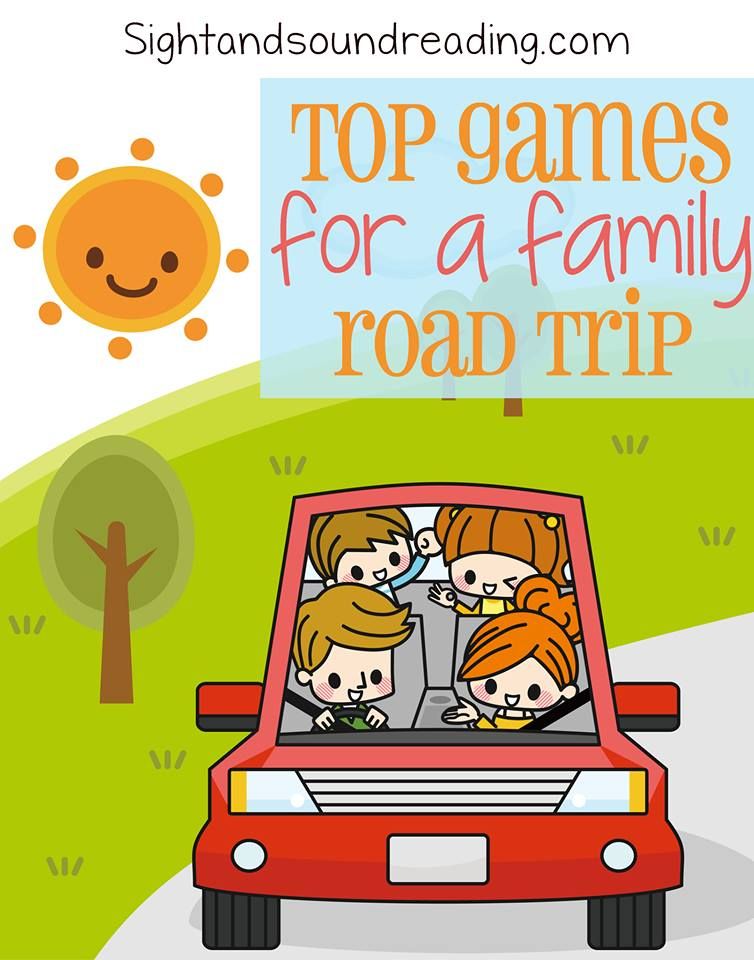 However, we are accustomed to call nature some special place, away from the city and next to the forest and water. Once we went to nature with the whole class. The PE teacher helped us make fishing rods and we fished…”, etc., etc. Time is recorded on a stopwatch. This game can be played by children from 5 years old. She perfectly trains the speech apparatus, the ability to quickly find a solution, to speak on given topics. Teach your child to smoothly move from one topic to another if he suddenly does not know what to tell him. This skill will be very useful to him in school and in adulthood.
However, we are accustomed to call nature some special place, away from the city and next to the forest and water. Once we went to nature with the whole class. The PE teacher helped us make fishing rods and we fished…”, etc., etc. Time is recorded on a stopwatch. This game can be played by children from 5 years old. She perfectly trains the speech apparatus, the ability to quickly find a solution, to speak on given topics. Teach your child to smoothly move from one topic to another if he suddenly does not know what to tell him. This skill will be very useful to him in school and in adulthood. - Yes-no game. This famous game will be a great travel companion. Think of an object or word in your head, and let the child ask questions that can only be answered with “yes” or “no”. Then switch roles. Teach your child to ask questions about the qualities of the subject, then the answer will be found faster. Suggestion - guess the word "NAME" for a child over 6 years old.
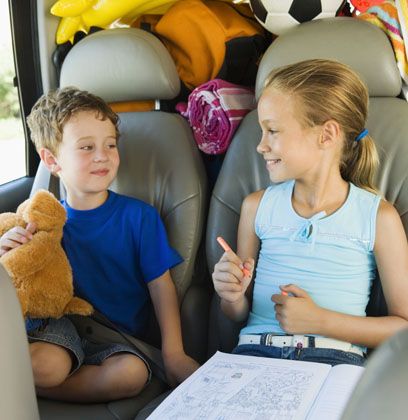 It is very interesting to watch how this word is guessed.
It is very interesting to watch how this word is guessed.
Was this information helpful?
Dunes
90,000 games on the road - the ABC of education Table of Table of Table- Write down the story “On the film”
- The first letter
- Complex words
- Remember some case
- Guess my song
- What I see?
- Quick sketch
- Car choir
- Speak like me
- Pick a tune
- Sad look
- Systematics
- Echo
- Grandmother's chest0014
- “T” -slova
- Compose poem
- Guess that this is
- account in the road
- I am famous
- license plates
- How do we hear letters
- Travel “Somewhere”
- Pizza in the car
- Caring for menus
- Alphabetical words
- Directions
- Spatial relationships
- Who will see first
- Puppet fingers
Traveling in a car or on an airplane limits the ability of a small one to move; and since “acting” is the natural state of the baby, it can be so difficult for him to sit in a limited space, and even “quietly”.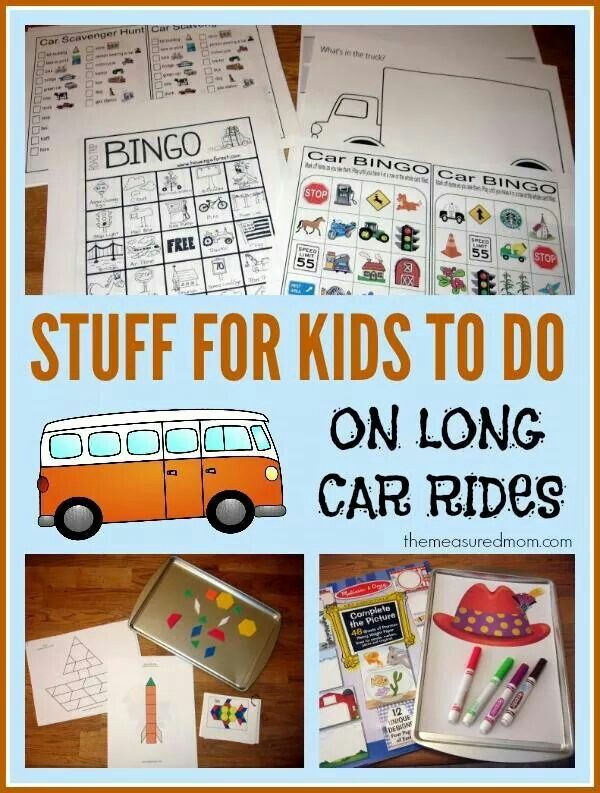 Adults have to be especially inventive in keeping the child's mind busy while the child's body is buckled in seat belts.
Adults have to be especially inventive in keeping the child's mind busy while the child's body is buckled in seat belts.
So to keep your little one entertained, take a travel bag with you, put some small toys, a finger puppet, a toy plane, a glass prism (which is meant for older children) and a player with some fairy tales or songs . To make the contents of the bag arouse the interest of the child, put in it an unusual toy - a “magic” slate board, a small chalkboard, or several toy characters from fairy tales. And for older children, come up with simple "magic" tricks. Children often experience hunger during long car rides. So that they stop whining and acting up, offer them food that is at hand. True, it would be better if, instead of the usual lollipops, you take bags of raisins, cheese, crackers and breakfast cereals with you.
Traveling by car (bus, ship, train, plane) is a great opportunity to observe the world around you. Invite the children to describe in detail everything they see, especially things that can easily be missed: the color of the clouds, the birds perched on poles, the length of a shadow on a winter day.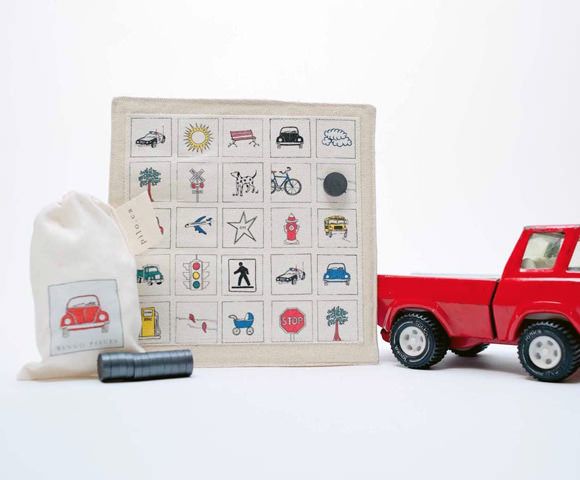 Make up stories about people in other cars or about pedestrians. If you are no longer interested in watching what is happening outside, keep your child busy with games. The tips suggested here are just a few things to get you started. Try to come up with other activities, and if the child is interested, the road will seem shorter.
Make up stories about people in other cars or about pedestrians. If you are no longer interested in watching what is happening outside, keep your child busy with games. The tips suggested here are just a few things to get you started. Try to come up with other activities, and if the child is interested, the road will seem shorter.
Record the story on tape
Bring a voice recorder (also a mobile phone with the appropriate function) in the car so that your child can record his or her radio story on the road. And to ensure the creative process, first tell me the place where the action can take place - a forest or a seashore. Then help choose the characters in the story. You can start like this: “Once, walking in the forest, I saw a huge, big and fluffy ...”, and then let the child continue on his own. At the same time, do not forget to turn on the recording in time. When the baby has finished his story, turn off the recording and ask him questions about what he has already told.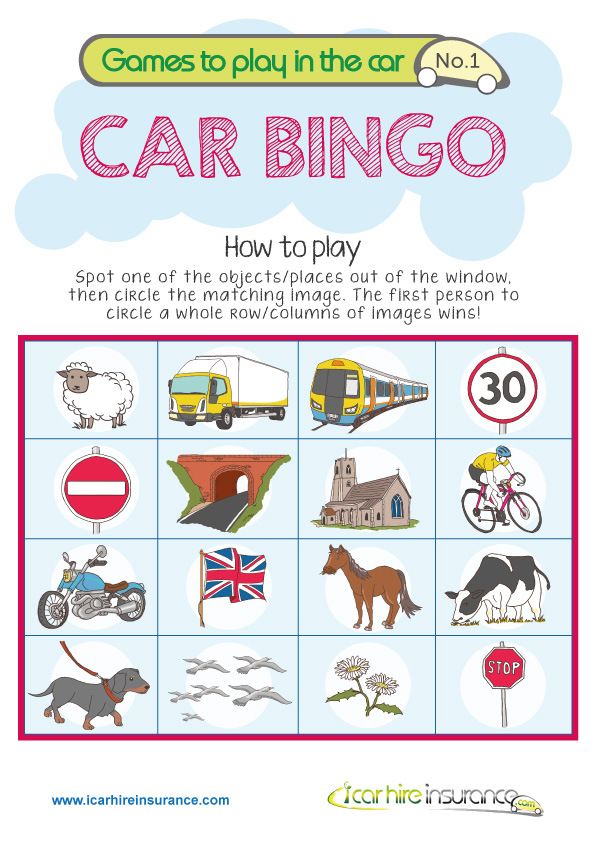 If there are several children in the car, they can create one common fairy tale in turn. Each of them should be allocated a certain time for the story, but so that the wait does not become tiring.
If there are several children in the car, they can create one common fairy tale in turn. Each of them should be allocated a certain time for the story, but so that the wait does not become tiring.
Continue the story over several journeys, or make up a new one each time. Some children enjoy the process of recording stories on a tape recorder, but then they lose interest in them. Others enjoy listening to their stories more than once before bed or at some other suitable time.
This idea of the Schlessinger family can please everyone, regardless of age. You will be able to make your passengers laugh with just one simple inscription "Wave if you are famous." It is better to write it in huge letters on a piece of cardboard or on a large sheet of paper. Have the children hold the poster in the window and be amused by how others react to it.
First Letter
During a long trip, you can play “first letter”. Have your child come up with words that start with the same letter as their name.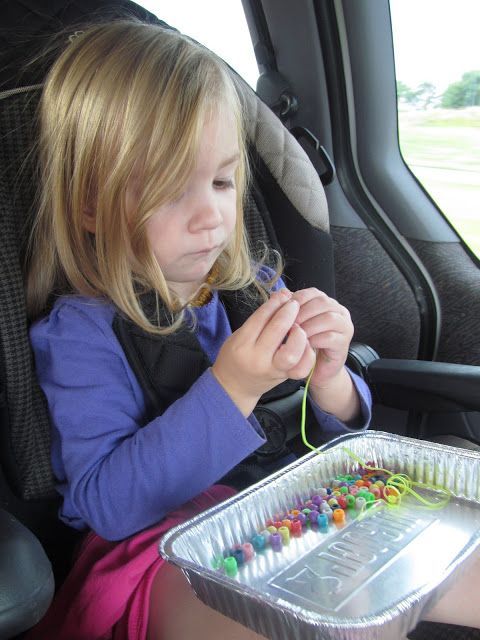 Give him some examples. If your child's name is Maria, then you can ask her: “What do you think, who is dad? He is not a woman, but ... " Or: "Under the hood of the car there is an object with the letter "M", which makes the car move. It…". Ask her: “Who runs the train? What do you add to breakfast cereals?
Give him some examples. If your child's name is Maria, then you can ask her: “What do you think, who is dad? He is not a woman, but ... " Or: "Under the hood of the car there is an object with the letter "M", which makes the car move. It…". Ask her: “Who runs the train? What do you add to breakfast cereals?
When you run out of words on "M", you can go to any other letter.
Compound words
Words are a generous gift to children. The richer their vocabulary, the sooner they will learn to perceive complex thoughts and feelings. The limited space of a car can be a convenient place for a word game. One of the games that help to replenish the child's vocabulary is to search for difficult words. Along the way, you will certainly meet a gas station, a car, a dairy. Maybe you will see a helicopter, a plane, a sports ground, a steamer, a dump truck, a waterfall, a bus station, an airport. At the same time, you can talk about how one complex word is formed from two words. Maybe you will pass a parking lot, a TV tower, a skyscraper. Looking out the window, pay attention to the telephone booth, to the cargo van, and at the intersection, slowing down, to the line of cars. Then, together with the children, name them with complex words: pay phone, truck, convoy.
Maybe you will pass a parking lot, a TV tower, a skyscraper. Looking out the window, pay attention to the telephone booth, to the cargo van, and at the intersection, slowing down, to the line of cars. Then, together with the children, name them with complex words: pay phone, truck, convoy.
In addition to complex words, there are stable phrases when two words denote one subject. For example, a telephone booth, an apartment building, a footpath, a police post, an advertising stand. Try to explain to the child that the simultaneous use of two words is necessary to designate these concepts; it is impossible, for example, to say only “telephone”, because it can be a station, a handset, and a service; if you leave only the word "booth", then you can think about the dog. Let the child himself try to play with words, supplementing in turn the first and second parts with suitable meanings.
For younger children, the exercise can be easier: try pronouncing the words in syllables.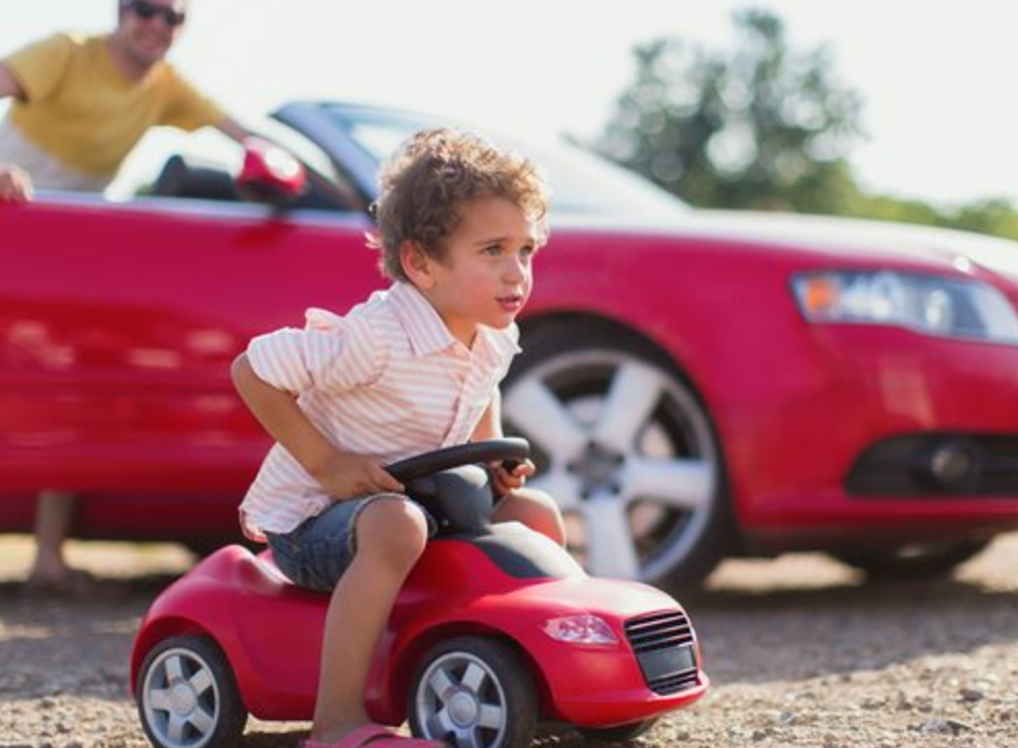 Do the stress on each syllable. Let the child repeat after you, and then together count the number of syllables. He learns that the word av-to-mo-bil has more syllables than the word sa-mo-let or ra-ke-ta.
Do the stress on each syllable. Let the child repeat after you, and then together count the number of syllables. He learns that the word av-to-mo-bil has more syllables than the word sa-mo-let or ra-ke-ta.
Recall an incident
Recall a recent event that you and your child participated in: visiting your beloved aunt, celebrating a birthday, or going shopping. Take turns telling what you saw and what you did. Your child might start like this: “When we were visiting Aunt Jane, I played train with Craig and Todd.” You add, “And Aunt Jane made French toast,” and your son will also remember, “And you spilled syrup on your blouse.”
Take turns recalling as many details as possible until there is nothing to add at all. Then select another event.
Guess my song
Sing the first line of a song that your child probably knows. If he recognizes her, let him sing the next one. If he doesn't find out, continue your vocal practice until he remembers. The child will support you as soon as he understands which song you have chosen. Then it's his turn to test your musical ear.
Then it's his turn to test your musical ear.
What do I see?
Draw your child's attention to what you are passing by. Let him help you describe the city and country landscapes passing by the window. Shout out in some way the appearance of unusual objects, such as hanging on telephone poles, a car with a dent on the side of the road, sports shoes hanging on a wire, and ask questions as you do so. For example: Let's count how many children are in the group? Are there more old or young people here? Look at the trees: are they the same? How are they different? How many churches (cafes, cows, fire stations, libraries or pharmacies) can you count?
Older children can be asked questions, the answers to which require analysis: “Why do you think cars harm the environment?”, “Why is it more profitable to build high houses?”
Quick Sketch
Encourage your child to be an artist: have them draw some pictures of what they see from the car. Give him paper and a pencil.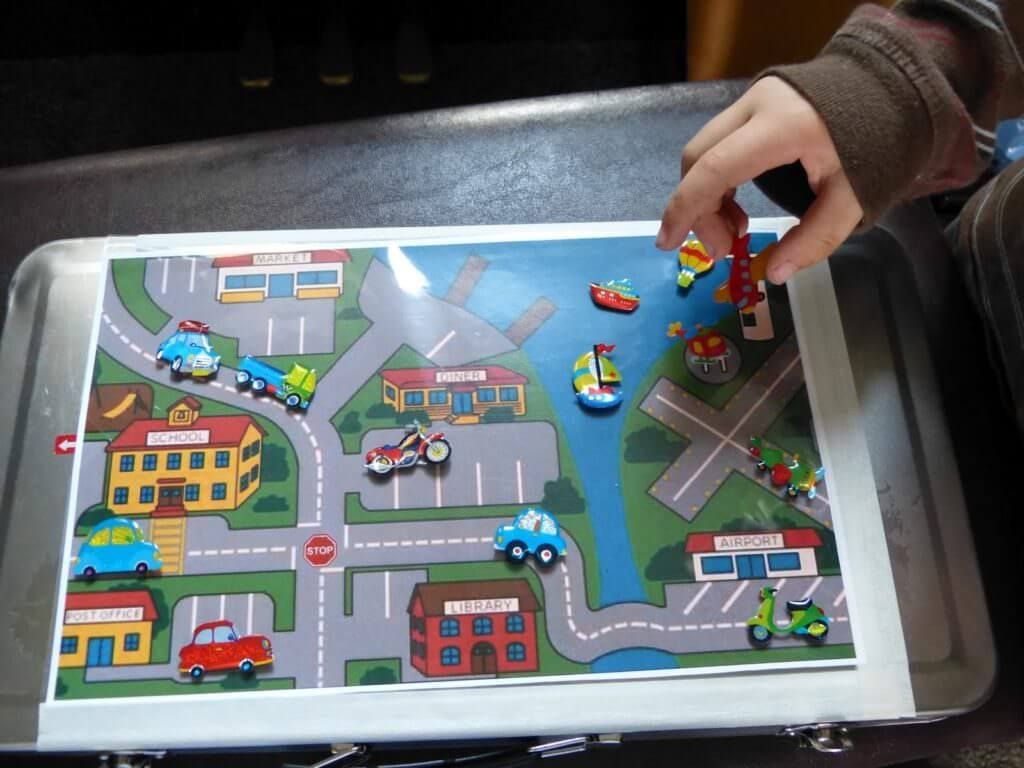 If you're on a long trip, have some colored pencils, felt-tip pens, or crayons handy. It would be nice to have not only a spare tire in the trunk, but also a notebook with a box of colored pencils, unless, of course, your child is sick in the car.
If you're on a long trip, have some colored pencils, felt-tip pens, or crayons handy. It would be nice to have not only a spare tire in the trunk, but also a notebook with a box of colored pencils, unless, of course, your child is sick in the car.
Travel tip
It would be nice to have a plastic tray in the trunk too. It can come in handy if your child gets the idea to write or draw something - the tray can serve as a good table for drawing.
If your child is diligent and likes to work hard on the details in his drawing, ask him about each of them. Are there trees near the house? Are there clouds in the sky? Who are the people in the picture? However, when your child runs out of patience or is simply a fidget, advise him to make small sketches of what he saw during the trip: let houses be in one drawing, cars in another, people in the third, trees and sky in the fourth, etc. If your child is a dreamer, give him the opportunity to rely on his own impressions and reflect them in the drawings.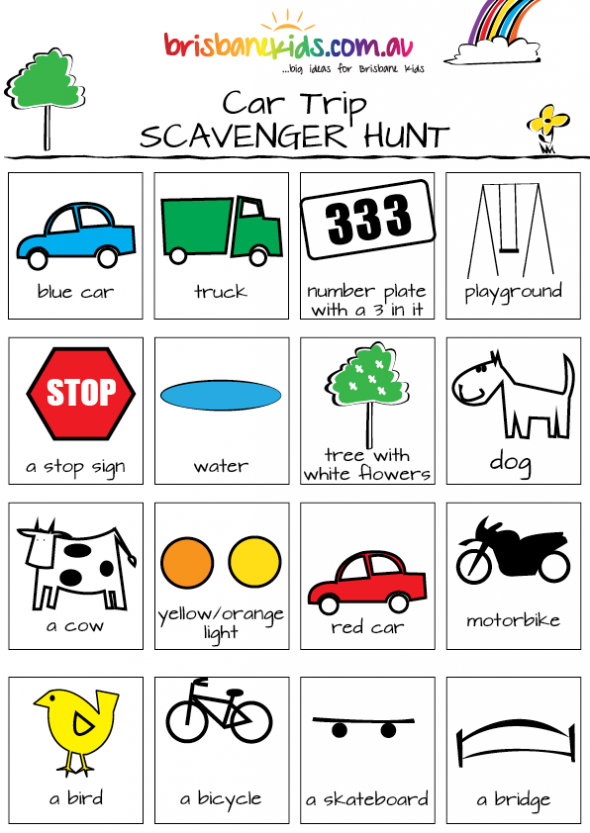
Do not forget
Even if the journey was not easy and you arrive late, do not forget to take the time to look at the drawings, and then carefully set aside, telling the child that later, at home, you will look at them in detail .
Car choir
Since you are driving your own "chariot", you can sing along to the tune. Everyone chooses a popular song that everyone can sing together. If there are several people in the car, then the "choir" can be divided into two or three groups. A car is a great place to teach kids the songs of your childhood or parents to get to know the songs they sing at school. If you like songs from musical films, listen to their recordings and learn the words together. Sing tunes from your favorite TV shows. Teach your child the songs you love and in turn memorize his favorite songs.
Advice for music lovers
If you have a tape recorder in your car, play recordings of children's songs or your favorite songs and sing along. Of course, you can manage on your own, and it will be even more interesting if you record your choral family performance.
Of course, you can manage on your own, and it will be even more interesting if you record your choral family performance.
Speak like me
It's amazing what effect can be achieved by saying the same thing in different ways. The child, by changing his voice, learns the difference in sounds more easily. Try like this. Repeat the alphabet or read the nursery rhymes in a normal voice. Then change the way you speak: speak very quickly or very slowly, in a high, thin voice or deep bass, constantly stopping at different syllables or stressing every third word, etc. Let the child imitate you, repeating exactly what he hears. Most children like to play with words by changing their voice. So they learn the world of words and language. For example, with a simple change in intonation, you can read the nursery rhyme "My merry sonorous ball, where did you rush to jump" as a lyric poem, or as a scary story, or as a political appeal. Try reciting with a French pronunciation, or groping in German, or in fragmentary syllables like the Chinese, or changing "e" to "e" like the southerners.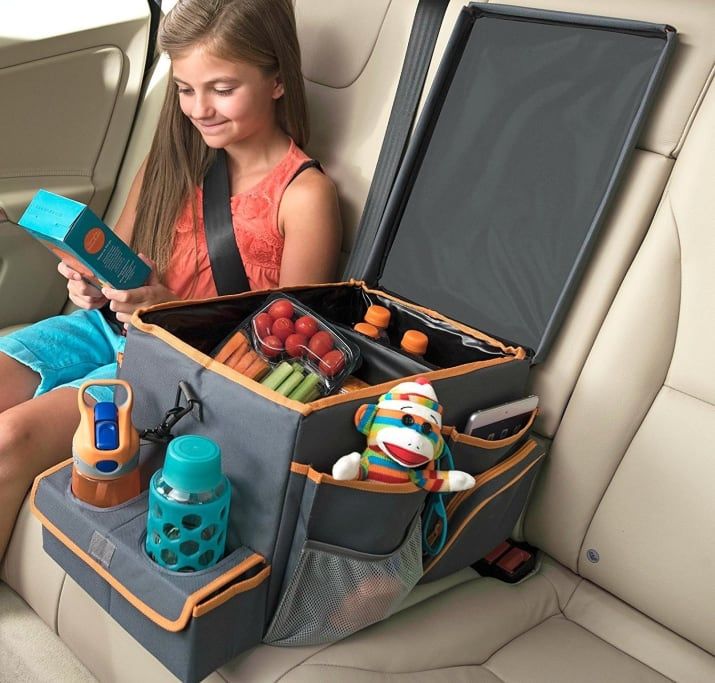
Pick a tune
Try using your favorite tunes for your family songs. If, for example, you are going to Aunt Bonnie's, who has a fat, fluffy cat named Delilah, you can borrow the melody from the song "A Christmas tree was born in the forest" with the words: fleas.
Brush her, scratch her!
Take any song and change the words however you want to make your own song. Probably, some of them will seem funny to you and will become a favorite in your family. Record the most successful ones on a voice recorder so as not to forget them.
Sad look
Look out the window and look at the world around you with a critical eye. Whenever any of you notice something that spoils the beauty of the landscape, or is harmful to health, announce: "Pollution" - and explain what it is. It could be a littered street, a suffocating truck exhaust, a smoking factory. Discuss the cause of the pollution. Compare the degree of pollution in the areas you pass through.
If you are passionate about helping nature, it would be a good idea to make small stops from time to time while traveling by car in order to clear at least those places that seemed especially attractive to you.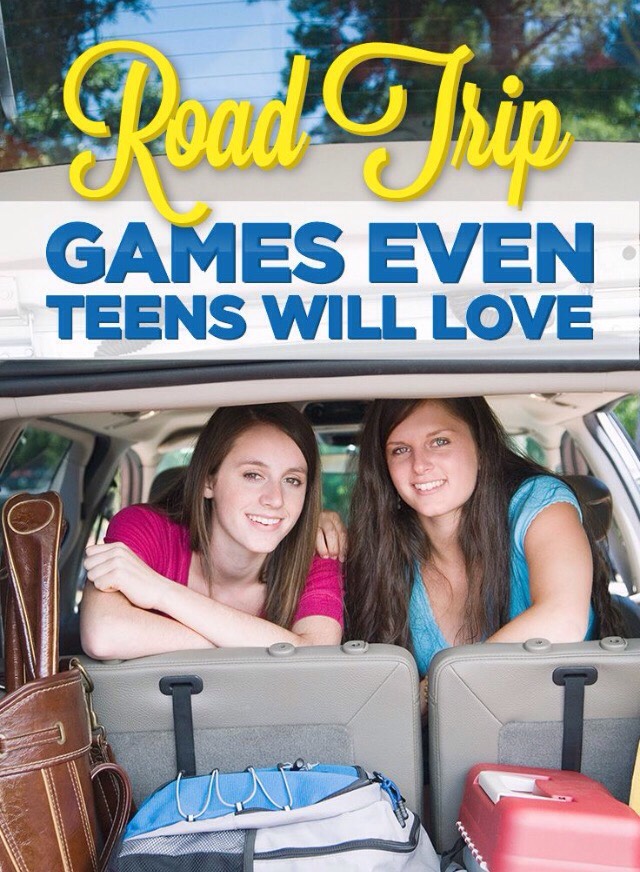
Systematics
Invite everyone in the car to observe objects of the same type from the window. These can be dogs, trees, flowers, road signs, trucks, institutions, etc.
Whenever one of you notices an object of this kind, he names and points to it. Everyone is trying to determine its distinctive features. If you have chosen dogs, you need to establish what breed it is - poodle, collie or mongrel. If these are buildings, then name their purpose - a library, post office, hospital or school.
This game is best played with older children, but it is equally interesting for adults. It is especially convenient to play it when the car is moving slowly. Of course, you don't really want to understand the breeds of dogs or read the signs on buildings if the car in front of you constantly slows down in front of you.
To add variety, you can write the name of the chosen object on paper at the top of the piece of paper and have your child draw a picture at the bottom.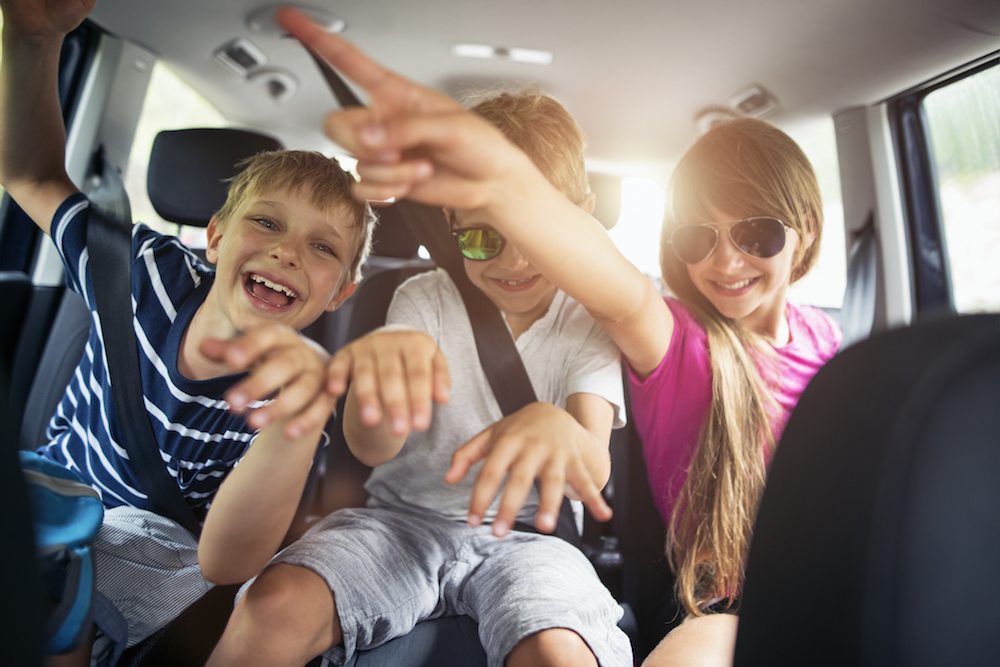 Have him make notes about each kind of object you see. Then you can choose other objects to observe and draw a new picture. By the end of the trip, you will know not only the quantity, but also much more about what you met along the way.
Have him make notes about each kind of object you see. Then you can choose other objects to observe and draw a new picture. By the end of the trip, you will know not only the quantity, but also much more about what you met along the way.
And all these trips will remain in the family memory as "a trip with cows" or "a trip to schools".
Echo
Repeat a sound several times. You can lightly knock on the glass, click your tongue, repeat one syllable (la-la-la), stomp your foot, etc. Let the child listen carefully and count how many times you have done this. Then he should repeat the sound, imitating you. Then it is his turn to make sounds, and you need to count and repeat them. Be patient if the child does something wrong. Remember that this is not a test of his ability, but just a game, and the more you practice, the better he will become to distinguish sounds.
Grandma's Chest
This fun game improves memory and helps you concentrate. Someone begins to chant: "I went to the attic and found .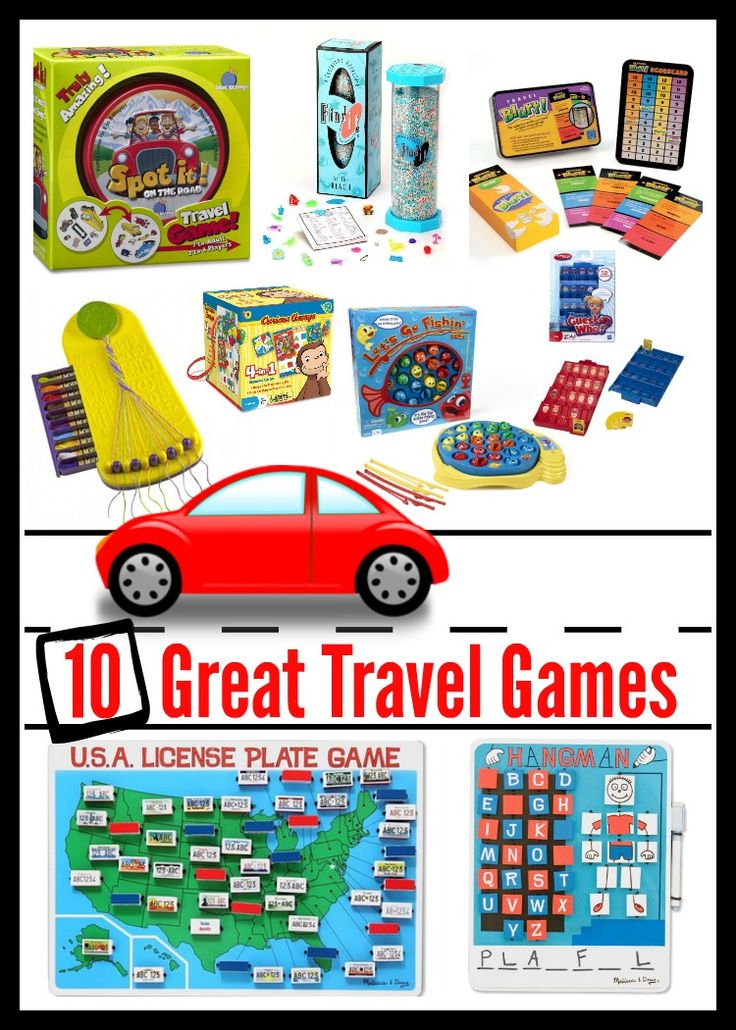 .." - and names any object that he wants. It could be real, or it could be fictional. For example: "I went to the attic and found a purple dog with yellow stripes (or a submarine floating upside down, a gold pocket watch, three Martians, a one-armed doll)."
.." - and names any object that he wants. It could be real, or it could be fictional. For example: "I went to the attic and found a purple dog with yellow stripes (or a submarine floating upside down, a gold pocket watch, three Martians, a one-armed doll)."
The second one repeats: “I went to the attic and found…” At the same time, he must name the object that the first participant in the game chose and add his own, continuing the story. And then each next player repeats everything that was said by the previous one, and adds his own. Count how many items you can remember in sequence by the time you finish the game.
A variation of this game is "grandfather's story". Here, too, it is necessary to name objects, but only alphabetically. For example: "When Jane went to the attic, she found an antelope, and I found a butterfly." Then the next player repeats the words for "a" and "b" and adds the word for "c".
Traveler's Tip
Create your own memory training exercise where items are listed in sequence and a new one is added with each repetition.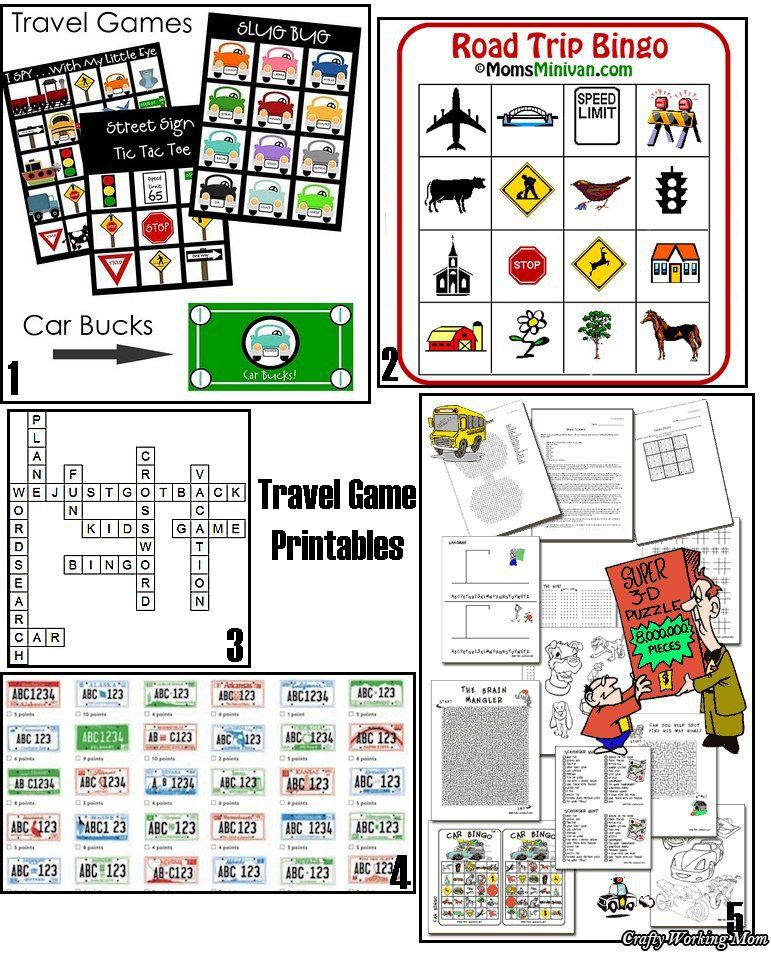 Call on your imagination to help. For example, “I went to a strange zoo where I saw a tiny red elephant, a snake wearing night slippers, a little giraffe, etc.”
Call on your imagination to help. For example, “I went to a strange zoo where I saw a tiny red elephant, a snake wearing night slippers, a little giraffe, etc.”
T-words
Take turns choosing any letter and, looking out of the car window, look for objects that begin with it. If the child is just learning letters, help him.
When an older child is in the car, they can write down the words they say, and the younger children can draw the objects they have seen.
Try to start the game with the letter "T" and carefully watch from the window for transport, taxis, tractors, telephones, pipes, tracks, trolleybuses, trams. The student may also notice: a trailer, a freight train, a theater, a dachshund, a ticket, a crowd. If all the “T”s that you meet on the way have dried up, then you can call any other words starting with this letter: dance, slippers, plate, cottage cheese, television, cart, calf, telescope, body, pace, temperature, tennis, shadow, warmth, thermometer, territory, dough, notebook, tiger, goods, theme, darkness, mud, push, brake, fat man, crack, tomato, ax, etc.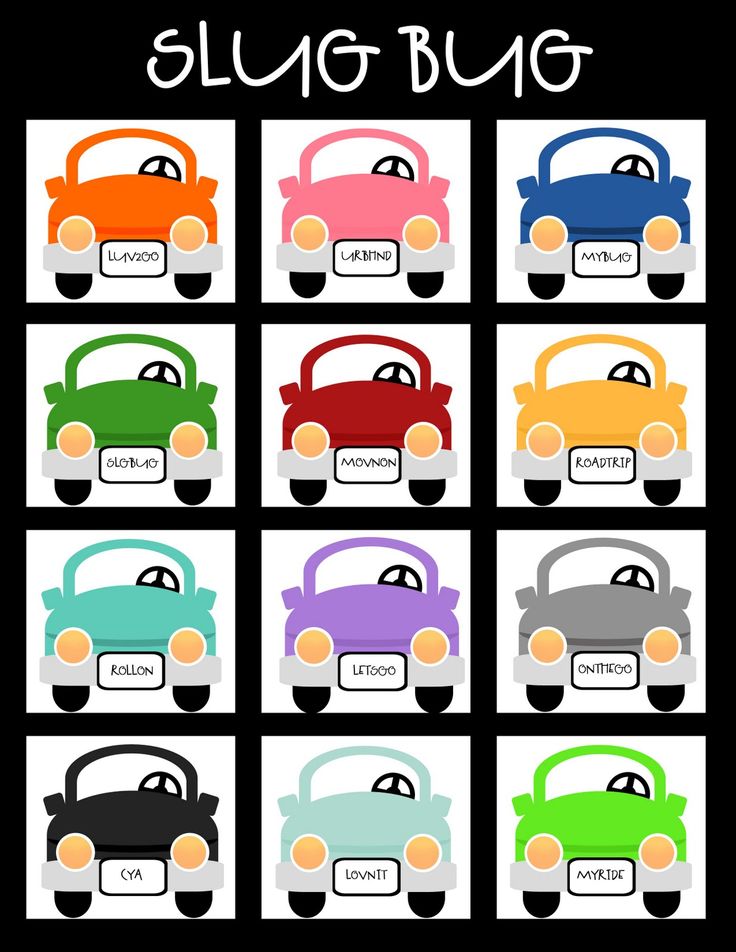
Start by looking for ten words beginning with the letter "T" and try to beat your record. Then try to do the same with other letters.
Write a rhyme
Start with a simple one-syllable word such as "cat" and add nouns in turn to rhyme: year, mouth, mole, honey, ice, vault. Then try to compose a quatrain, something like this:
Don't bite me bee,
Tell me how you are.
At parting, make a circle
And fly to the motley meadow.
Then see what happens with your poem if you combine the same words in a different order:
A bee hummed to me:
“I’m doing well:
I don’t want to bite,
I’d rather fly to the meadow.”
Even if you are not sure about the poetic gift of your child, you still need to give him a chance. After all, even adults with their large vocabulary sometimes write such nonsense.
Guess what it is
Maybe you played this simple game with your parents, and they played with theirs. Think of an object and ask the child to guess what it is.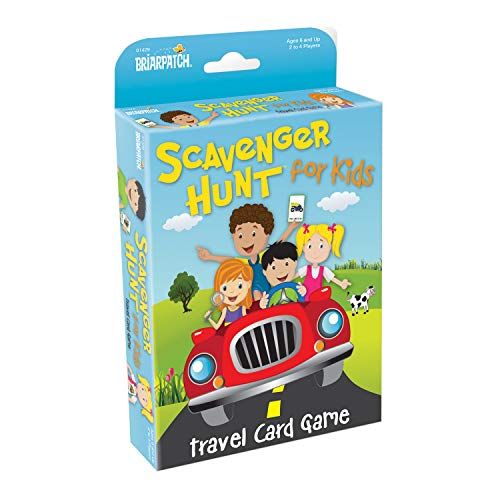 Give him one hint. If he doesn't guess, tell me again. Keep helping him until he names the thing correctly. To make the task easier, you can describe the features of the item and how it is used. For example, if you chose the steering wheel of a car for the puzzle, the first clue might be: "It's something round." Then: "It helps to steer the car in the right direction." Third clue: "He's being touched by the driver." Then: "I need to hold it when I'm driving." At first, your descriptions should be simple and specific so that the child can easily guess the item. As he gains experience with this game, the item can be described in more veiled terms and detailed descriptions only when necessary. Ask such riddles to each other in turn.
Give him one hint. If he doesn't guess, tell me again. Keep helping him until he names the thing correctly. To make the task easier, you can describe the features of the item and how it is used. For example, if you chose the steering wheel of a car for the puzzle, the first clue might be: "It's something round." Then: "It helps to steer the car in the right direction." Third clue: "He's being touched by the driver." Then: "I need to hold it when I'm driving." At first, your descriptions should be simple and specific so that the child can easily guess the item. As he gains experience with this game, the item can be described in more veiled terms and detailed descriptions only when necessary. Ask such riddles to each other in turn.
Travel Count
If your child is anxious to get there, have them count objects along the way. You can count how many red traffic lights you see, how many intersections are the distance from your home to a turn on a highway, or from a school to a supermarket.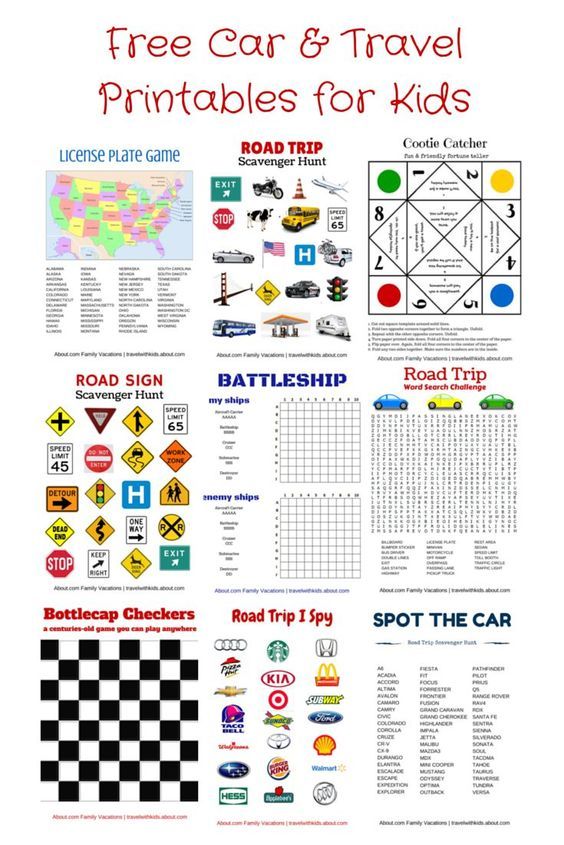 Offer him such a game: who will count to a larger number while you drive from one traffic light to another, or how many songs you can sing until the next traffic police post.
Offer him such a game: who will count to a larger number while you drive from one traffic light to another, or how many songs you can sing until the next traffic police post.
I'm famous
This is a variant of the well-known old game "Twenty Questions"; the only difference is that all questions refer to an outstanding person. Someone says: “I am a famous person. Guess who." Other participants in the game ask leading questions to determine "who he is", and the answers can only be "yes" and "no".
For example, you can't ask, "Which movie did you see last year?" According to the rules, only this way: “Were you shown on television last year?”, “Was it funny?”, “Was it serious?” etc.
Traditionally, you can ask only twenty questions to guess who is being talked about, but you can continue the game. To do this, the "famous person" must give you three clues, and you ask twenty more questions. You can come up with any other rules.
License plate
In every country, children play with car license plates.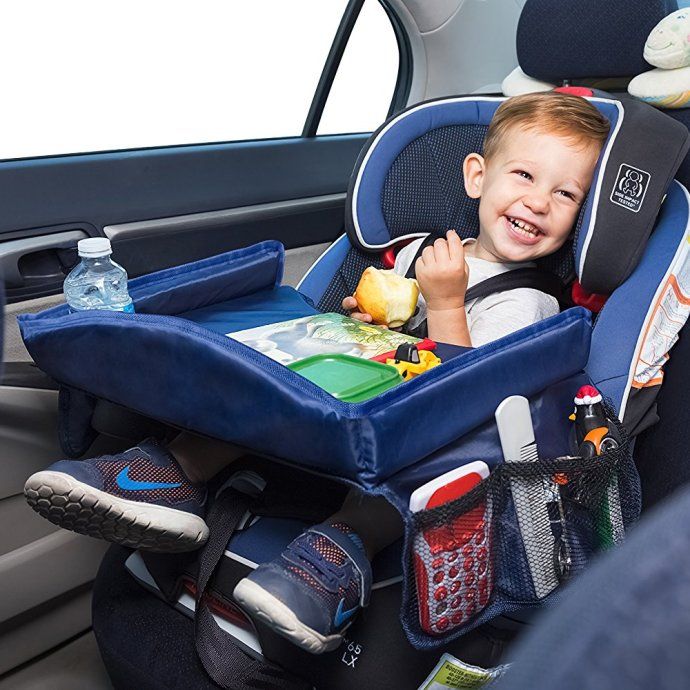 Here are the variants of these games:
Here are the variants of these games:
- doublets and triplets - look for letters and numbers that are repeated on the sign;
- regions - see how many license plates of different regions you can find;
- unusual license plates - look for signs with an interesting combination of letters, choose the most funny ones and try to understand what they mean;
-- 21 - look for numbers whose sum of digits is equal to twenty-one or any other number that you think of;
--alphabet - when looking for letters on license plates, name them in alphabetical order.
How do we hear the letters
While the younger children are playing with license plates, you can use another exercise to develop the older children's ability to distinguish letters by ear. To do this, one of you names a word, and the other must name a word that begins with the last letter of the previous one. For example; elephant, rhino, hyena, stork. Play around in a counterclockwise direction. Have the children name 5 words in 60 seconds or 10 words in 2 minutes.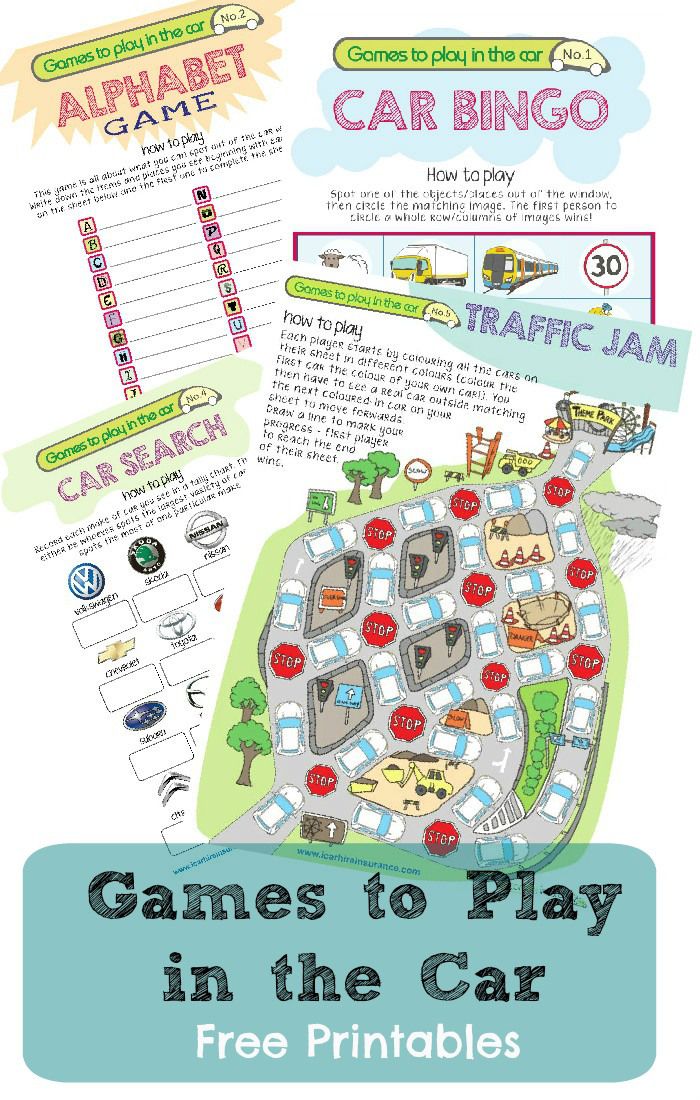 Then test yourself to see if you can do it faster.
Then test yourself to see if you can do it faster.
Traveling “somewhere”
Imagine that instead of going to work or shopping, you and your child are going “somewhere”. Decide where you would like to go, what you need to take with you and what you will do there. Pack imaginary luggage for a trip "somewhere" and imagine what kind of entertainment awaits you there. Together come up with the details of the trip and what you will see there.
Travel Tip
Sometimes you have to drive on a busy highway, which requires calmness and full concentration of your attention. To occupy the child for this time, take an hourglass with you for 2-3 minutes. If the traffic on the road is heavy or you are tired, give your child this watch and ask him to sit quietly while the sand pours down. If necessary, have him turn them over and wait for the sand to spill over again.
Pizza in the car
If you are going to have lunch or dinner when you arrive home, and the long road has tired you, depriving you of your appetite, then while still in the car, you can excite it.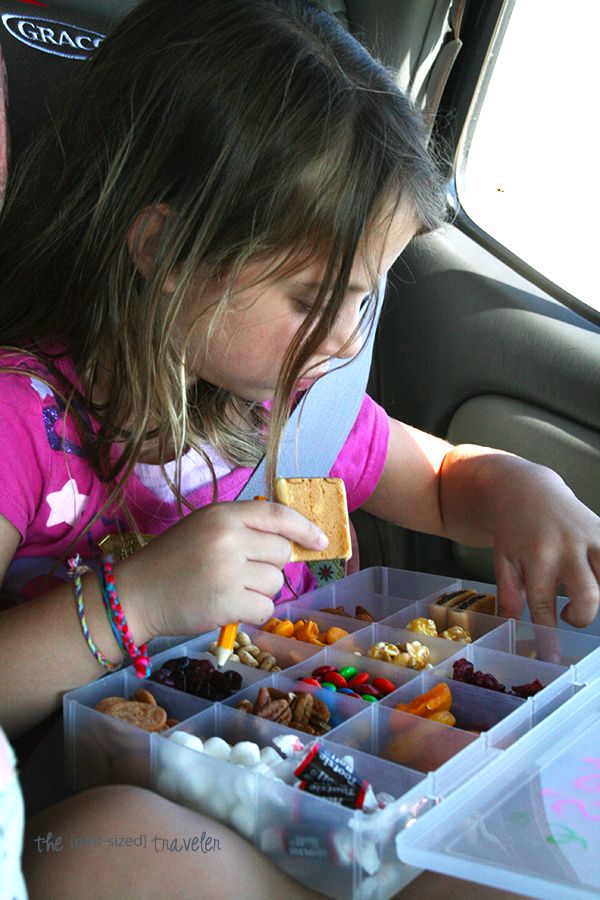 Think about what you would like to eat; Let's say your child chooses pizza. Start "cooking" an imaginary pizza right in the car. Ask him what it takes. If he says that you need to take the dough, then ask how he is going to cook it. Talk about what tomato paste is made of, how to grate cheese, and how to get dried seasonings.
Think about what you would like to eat; Let's say your child chooses pizza. Start "cooking" an imaginary pizza right in the car. Ask him what it takes. If he says that you need to take the dough, then ask how he is going to cook it. Talk about what tomato paste is made of, how to grate cheese, and how to get dried seasonings.
Taking care of the menu
Take care of your taste buds. Don't imagine pizza on the day you're about to serve mashed fish for dinner.
If your child enjoys cooking in the car, go ahead and make a real pizza at home, and of course with the help of your little helper, while remembering with him what you discussed in the car.
Alphabet Words
If your child is starting to read, that is, he already knows the alphabet well, he is ready for this game. Adults also enjoy playing it, and older children willingly join in helping the little ones. This game is for the whole team.
Choose any kind of object, animate or inanimate, such as animals, familiar people, items of clothing, or places to go.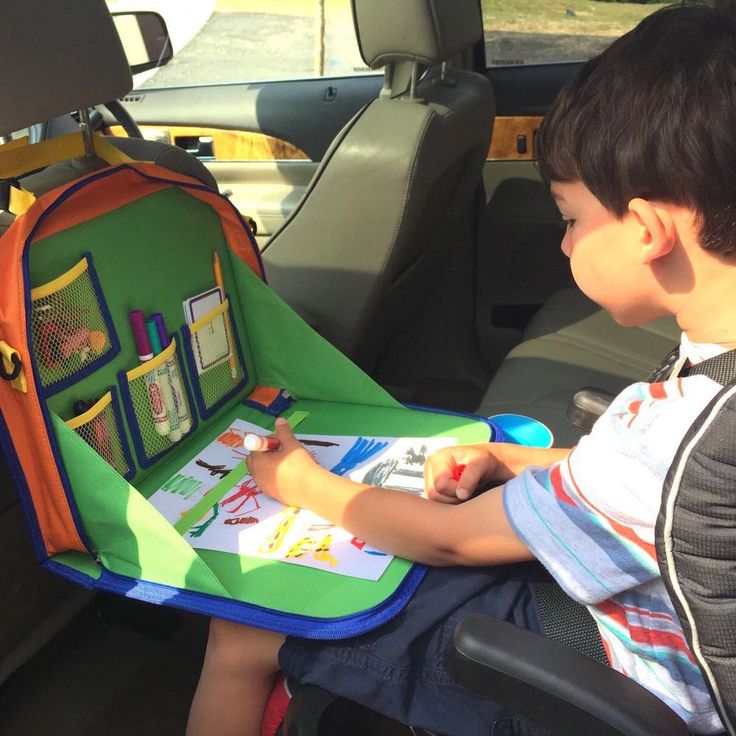 Then name the words from the selected category in alphabetical order, for example: antelope, ram, wolf, hyena ... Young children can be prompted. The meaning of the game is not only to have fun, but also to learn letters, sounds, words. If there are older children in the car, you can play this game with two teams. First, the younger one calls the antelope, then the older one calls other animals with "A", for example, a shark or an alligator. An adult can also play or help each of the children. If you can't find a word quickly, don't linger, keep going without making the kids bored.
Then name the words from the selected category in alphabetical order, for example: antelope, ram, wolf, hyena ... Young children can be prompted. The meaning of the game is not only to have fun, but also to learn letters, sounds, words. If there are older children in the car, you can play this game with two teams. First, the younger one calls the antelope, then the older one calls other animals with "A", for example, a shark or an alligator. An adult can also play or help each of the children. If you can't find a word quickly, don't linger, keep going without making the kids bored.
Homework
When you get home, choose an object or animal your child doesn't know about and read about it in a book. You will be interested too.
Directions
If your child is struggling to learn which is right and which is left, help him by spending five minutes playing Directions. You can do this only on quiet sections of the road and, of course, not in the middle of the highway.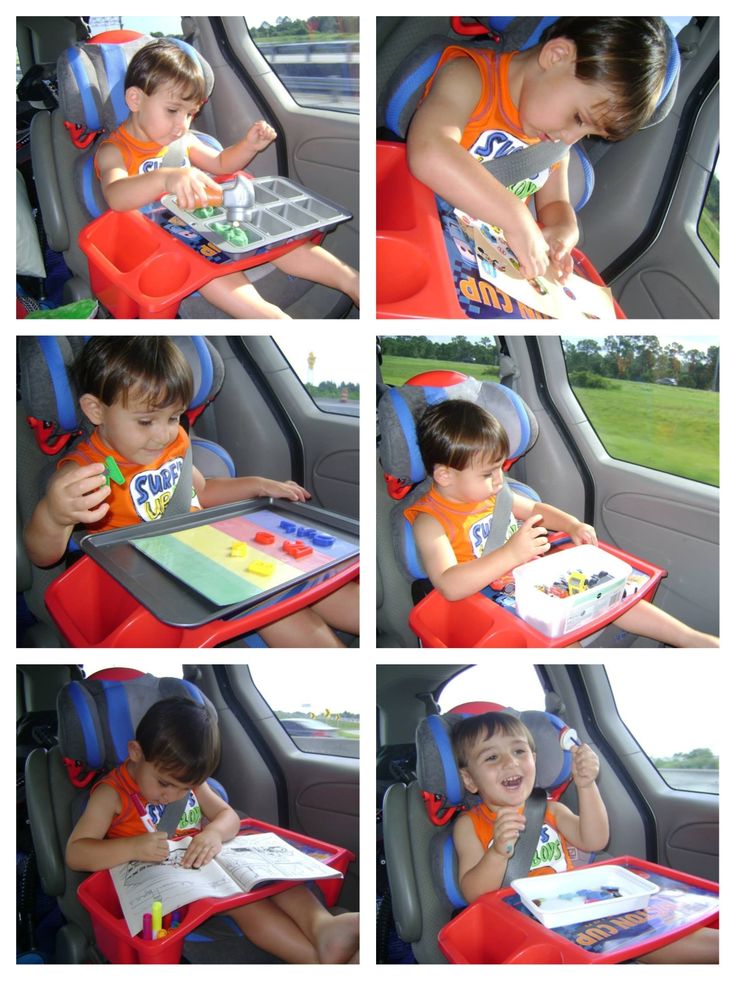 Let him control the movement of your car, giving commands "right" and "left". If he raises his left hand and tells you to turn left, you do so. After accepting the command, you can also raise your left hand and say: “Yes, the car is turning left.” If he tells you to turn right, and there is no right turn in this place, then drive up to the sidewalk, stop the car and say: "The command is incorrect, the car cannot move in this direction." After doing a few exercises, check whether the child, mentally repeating this situation, can give the right command.
Let him control the movement of your car, giving commands "right" and "left". If he raises his left hand and tells you to turn left, you do so. After accepting the command, you can also raise your left hand and say: “Yes, the car is turning left.” If he tells you to turn right, and there is no right turn in this place, then drive up to the sidewalk, stop the car and say: "The command is incorrect, the car cannot move in this direction." After doing a few exercises, check whether the child, mentally repeating this situation, can give the right command.
Spatial Relationships
When your child is a little older and already knows which is right and which is left, you can use the car to help him develop a sense of distance. To do this, you drive a quarter of a kilometer, half a kilometer, a kilometer, and then name the distance - 250m, 500m and 1000m, that is, the one that you drove.
Who will see first
Have the children come up with their own rules of the road.